#Classpect Analysis
Explore tagged Tumblr posts
Text
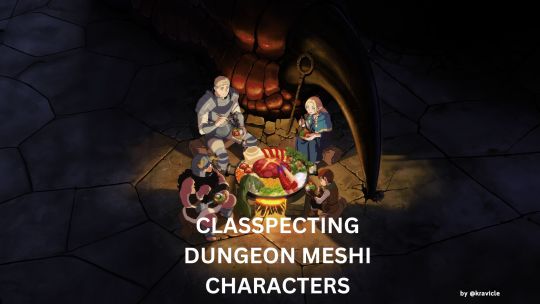
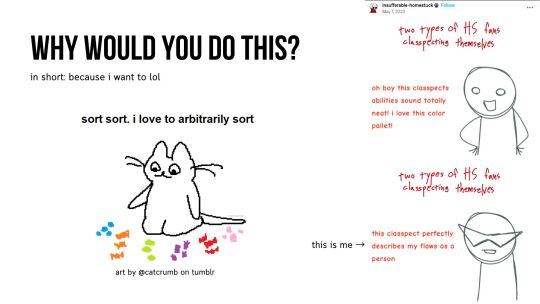

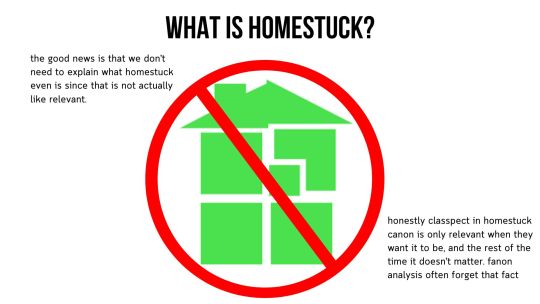


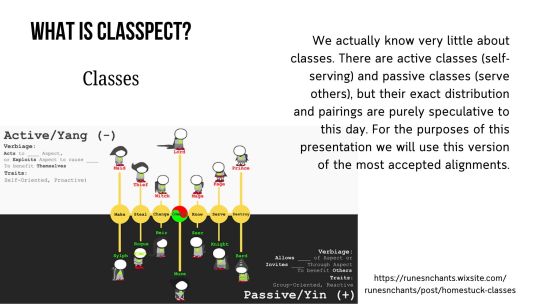
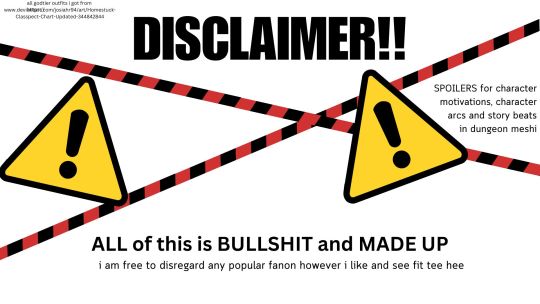



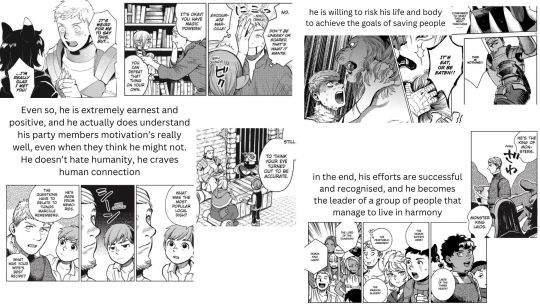
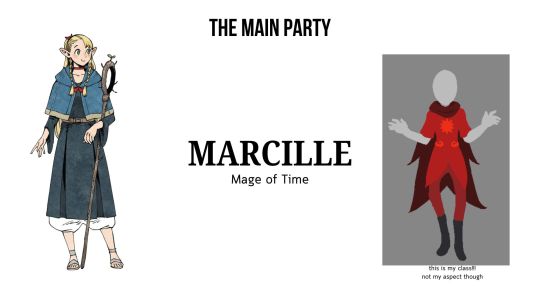


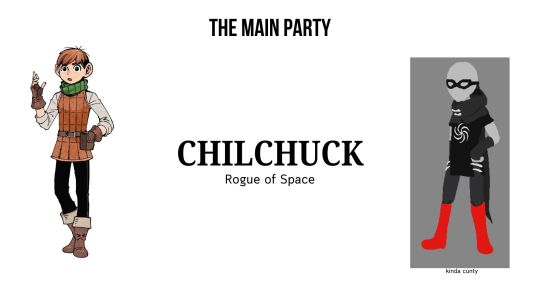

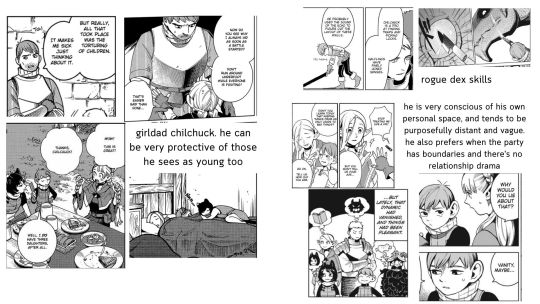
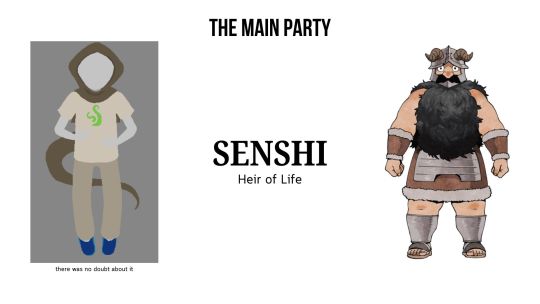
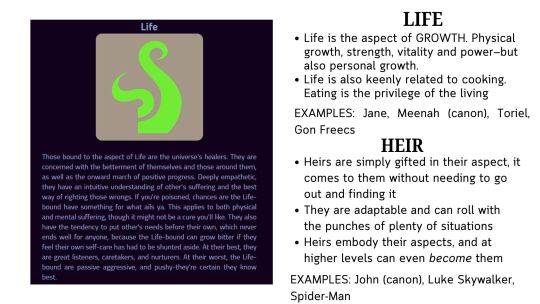
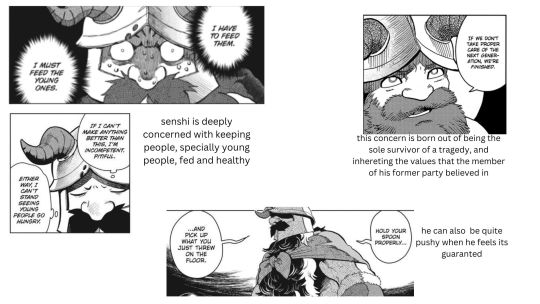
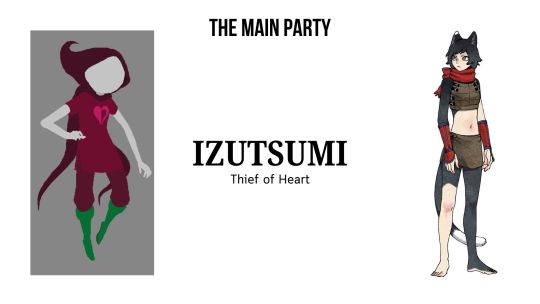
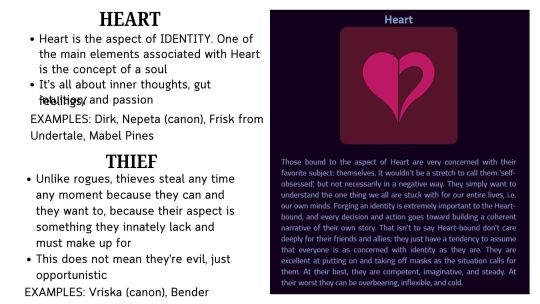
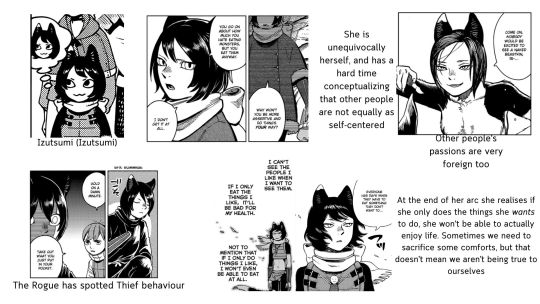

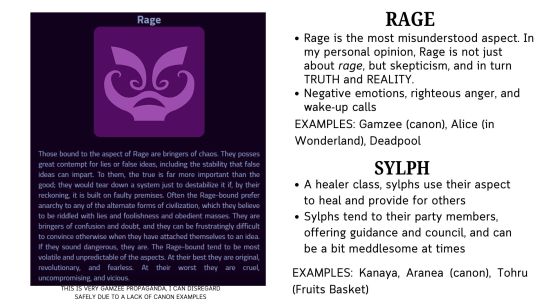
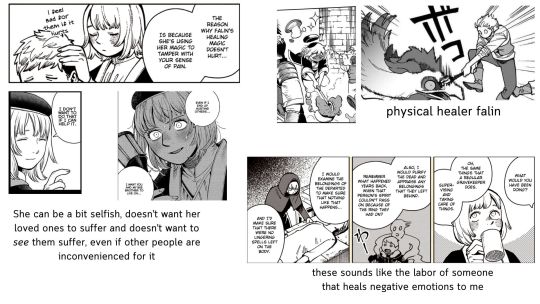
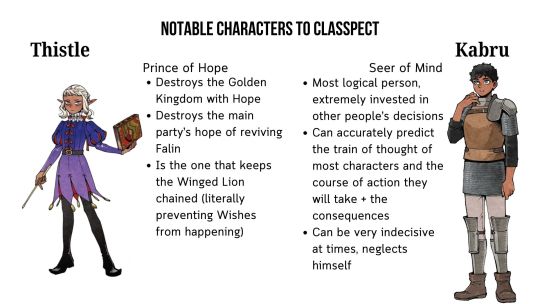

here is my masterpiece. enjoy
#dungeon meshi#dungeon meshi spoilers#homestuck#classpect#classpect analysis#hs#krav speaks#i thought about this a lot#if im missing any credits PLEASE let me know
620 notes
·
View notes
Text
this post is about @superxstarzz combined classpects, specifically the classes. if you don’t know what i’m talking about, then go check it out!
warning: veeerrry long post. i will be talking a lot and it might not make sense because it’s two in the morning right now.
a pretty long while ago now (probably around october of last year), i had the idea to get super autistic about superxstarzz (aka casey)’s combined classes. since the combined classes are derived from, well, combining the normal classes, the best place i could think to start was by simplifying the function of the canon classes into just a few words. here’s my list below:
maid - mend self
page - grow self, utilize in self
mage - self suffers from; suffers for self
knight - defend others
rogue - distribute to others
sylph - meddle with others
seer - understand/see for others
thief - steal for self
heir - self becomes
bard - invert in self
prince - destroy in others (i know that bards destroy too, but princes destroy more actively than bards)
witch - manipulate others
with this initial task out of the way, figuring out the combinations of the classes became simply figuring out how to combine the functions. this took me only a couple hours of wasted class time, so if you’re a fan of superxstarzz’s combined classpects, feel free to find your favorite class and please enjoy my interpretation of its function!
(note: descriptions will be formatted with the two base classes that combine to make the class, the name of the class, its whole function, and one word to describe its function)
maid/page = CONDUIT - heal self through utilizing. “grow”
maid/mage = REPENTER - heal self through suffering. “recover”
maid/knight = MOTHER - defend others through healing self. “nurture”
maid/rogue = DUCHESS - distribute the healing of self to others. “empower”
maid/sylph = ARTIST - heal self through meddling with others. “interfere”
maid/seer = AUTHOR - heal self through understanding others. “learn”
maid/thief = COLLECTOR - heal self through stealing for self. “gather”
maid/heir = AVATAR - heal self through becoming. “accept”
maid/bard = INVADER - heal self through inverting in self. “subvert”
maid/prince = SOVEREIGN - heal self through destroying in others. “circumvent”
maid/witch = PUPPETEER - heal self through manipulating others. “guide”
page/mage = BEHOLDER - utilize/grow through suffering. “realize”
page/knight = CHANCELLOR - defend others through growing. “master”
page/rogue = ANARCHIST - utilize/grow through distributing to others. “donate”
page/sylph = DOCTOR - utilize/grow through meddling with others. “prescribe”
page/seer = MENTOR - utilize/grow through understanding others. “study”
page/thief = MOONLIGHTER - utilize/grow through stealing for self. “covet”
page/heir = OVERACHIEVER - utilize/grow through becoming. “crescend”
page/bard = KEEPER - utilize/grow through inverting in self. “reflect”
page/prince = OVERLORD - utilize/grow through destroying in others. “devastate”
page/witch = MANIPULATOR - utilize/grow through manipulating. “command”
mage/knight = GRANDMASTER - suffer from defending others. “martyr”
mage/rogue = ARCHIVIST - suffer from distributing to others. “sacrifice”
mage/sylph = NEUROSURGEON - suffer from meddling with others. “collateral”
mage/seer = PROPHET - understand others through suffering; suffer through understanding others. “witness”
mage/thief = VICTOR - steal for self through suffering; suffer from stealing for self. “shield”
mage/heir = VICTIM - suffer through becoming. “transform”
mage/bard = TRAITOR - suffer from inversion in the self. “deteriorate”
mage/prince = SCOURGE - suffer from destruction in others. “languish”
mage/witch = DISPLACER - suffer from manipulating others. “disrepair”
knight/rogue = SCOUT - defend others through distributing to others. “fortify”
knight/sylph = CLERIC - defend others through meddling with others. “adjure”
knight/seer = TOMEKEEPER - defend others’ understanding; defend through understanding others. “conserve”
knight/thief = CONFIDANT - defend others through stealing for self. “redirect”
knight/heir = CONTRIBUTOR - defend others through becoming. “burden”
knight/bard = ANTITHESIS - defend others through inversion in self. “misdirect”
knight/prince = WARDEN - defend others through destruction in others. “prune”
knight/witch = HACKER - defend others through manipulation of others. “coach”
rogue/sylph = NURSE - distribute to others through meddling with others. “inspire”
rogue/seer = SCRIBE - distribute understanding. “teach”
rogue/thief = PILFERER - steal for self through distribution to others. “tax”
rogue/heir = BEACON - become distribution; distribute through becoming. “emanate”
rogue/bard = ARCHER - distribute through inversion of the self. “agitate”
rogue/prince = VANDAL - destroy in others through distribution. “poison”
rogue/witch = IMPROVER - distribute to others through manipulation. “change”
sylph/seer = HERBALIST - understand through meddling with others. “acquaint”
sylph/thief = MISTRESS - steal for self through meddling with others. “intrude”
sylph/heir = WEAVER - become through meddling with others. “mediate”
sylph/bard = POLLUTER - invert in self through meddling with others. “suggest”
sylph/prince = CHEMOTHERAPIST - destroy in others through meddling. “implant”
sylph/witch = REMNANT - manipulate others through meddling. “micromanage”
seer/thief = PLAGIARIZER - steal understanding; understand others through stealing for self. “cheat”
seer/heir = MONK - become through understanding others. “enlighten”
seer/bard = REWRITER - invert in self through understanding others. “question”
seer/prince = GATEKEEPER - destroy in others through understanding; destroy understanding in others. “erase”
seer/witch = JUDGE - manipulate others through understanding. “convince”
thief/heir = FRAUD - become through stealing for self. “usurp”
thief/bard = HOARDER - invert in self through stealing for self. “pickpocket”
thief/prince = PARASITE - destroy others through stealing for self. “drain”
thief/witch = ADAPTER - manipulate others through stealing for self. “preach”
heir/bard = SABOTEUR - become through inverting in self. “revise”
heir/prince = SUPERNOVA - become through destroying in others. “obliterate”
heir/witch = SUITOR - become through manipulation. “advise”
bard/prince = ANNIHILATOR - destroy in others through inverting in self. “uproot”
bard/witch = SORCEROR - manipulate others through inverting in self. “masquerade”
prince/witch = WARLOCK - manipulate through destroying in others. “siege”
and that’s all of them! thanks for sticking around. if you wanna see me do this for the combined aspects as well, let me know :3
sorry for making you wait so long for this, superxstarzz, i completely forgot to make this post at all. hope you enjoyed though qwq
- stickybee
#homestuck#superxstarzz#combined classpects#classpects#homestuck classes#homestuck classpect#hom3stuck#classpecting#classpect analysis#< technically
53 notes
·
View notes
Text
Breath as Influence and John in the Epilogues
Breath is probably one of the better understood aspects. “What is it?” someone asks – and the whole fandom is like, “Oh, Breath is about freedom and wind and detachment.” Which I don't disagree with. But I think most people miss a key piece of it – Breath as influence.
I'm no seasoned classpector, but I am a Mage of Breath, so I feel like I have a deep and personal understanding of Breath, particularly because of how it has manifested in my life. Yeah, I know, claiming I'm an authority on the subject because of my self-imposed alignment within a fake typology system makes me sound like an asshole. But I'll have to ask you to trust me, because if I start talking about my own experiences, I'll sound like even more of an asshole.
Anyway, let's kick this off with the official description of Breath, per the Extended Zodiac:
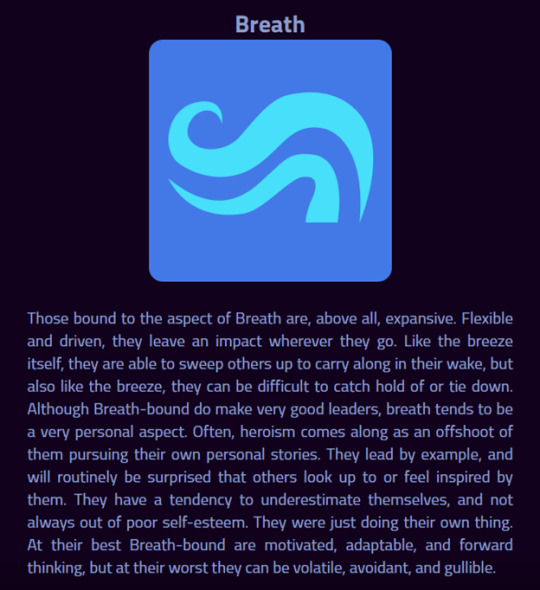
In summary: the Breath-bound are flexible, driven, detached, and maybe a little self-centered. Also, other people tend to get caught up in their personal development, which tends to make them good leaders. But the most important thing here for the point I'm making is this:
others ... feel inspired by them.
This word, inspired, has been rolling around in my brain for the past few weeks, because of its connection to Breath. Hey, did you know that “inspire” comes from Latin spirare, meaning "breathe"? And if we include the Latin prefix in-, it becomes "breathe into."
The Breath-bound have an ability to breathe into, or inspire others. They're not aware of it – after all, they are just living their lives for themselves. But wherever they go, they are inspiring people. Or, more accurately, they are influencing people. Actually, the influence of Breath goes beyond just people. I could even get meta with it (and I will. I apologize in advance). But let's start small for now.
Tavros Nitram
So, Tavros. Page of Breath. Pretty much all of Tavros's contributions to Homestuck as a story happen as a result of someone doing something to him. Vriska paralyzes him, which kickstarts the whole FLARP cycle of revenge arc. And again when the truce is broken in Act 5 Act 2, it is because Vriska kills Tavros. If this doesn't sound like influence to you, you're right. Tavros has very little influence. He's a Page, after all, and if there's one thing I know about Pages, it's that they're weak as shit until they reach their "true potential," which is pretty much always something stupidly overpowered. Y'know, like Jake overpowering Jade's first guardian powers. That was pretty batshit, I'd say.
But Tavros's contributions don't end there. He actually does reach his true Page-y potential right at the very end of Homestuck, when he gathers an army of ghosts – honestly, probably every single ghost in the furthest ring – by just talking to them. Was this something of a punchline to a very long joke? Probably. But it is also a pretty good example of the kinds of things Breath players typically do.
On a meta level, though, this argument kind of falls apart, because... As far as I can tell, the army of ghosts doesn't really do anything. Nothing important, anyway. Lord English's defeat is pretty much entirely at the hands of John, Dave, Davepetasprite^2, and alt!Calliope in the body of Jade, as described in the Epilogues. The ghost army just isn't relevant, in the end.
But you know what is relevant? Vriska.
Half the people reading this just groaned, I can feel it. Why are we talking about Vriska, a Light player, on a post about Breath?? I hear your question and I raise you this: Why the fuck is Vriska so obsessed with Breath players???? Personally, I think it's because she has an innate sense for their passive ability to decide what's relevant.
But before we get into Vriska, let's talk about John.
John Egbert
John, Heir of Breath. The protagonist of the story. In the context of my thesis of "Breath as influence," isn't it interesting that the protagonist is a hero of Breath? And even beyond that, he's an Heir, a class typically interpreted as "becoming" their Aspect, or "inheriting" it. If you find my argument compelling, you could even say John is the influence that drives the story. Which is exactly what a protagonist does - after all, what is a story without a protagonist?
This question is actually addressed in Homestuck, kind of. At some point in Act 4, Terezi manipulates John into visiting his denizen early, which gets him killed. The story is left without its protagonist, and progress grinds to a screeching halt. Jade doesn't enter the Medium and presumably dies. The reckoning never happens. Dave and Rose are trapped in a doomed timeline. They lose contact with the trolls. For what is a world without the breeze, without air, but a place of complete standstill? The story needs John to continue. Okay, it needs Rose and Dave and Jade just as much. But it's interesting that the story makes a point of John's death being the turning point that makes this particular timeline doomed.
Okay, sorry for the wait. It’s Vriska time. Vriska's driving motivation is to be relevant. She does everything in her power to steal the spotlight, which may or may not be related to the fact that she's a Thief of Light. Again, I'm not an experienced classpecter. I only really have a surface level understanding of Light. But I'm getting off topic here.
In Act 5 Act 2, Vriska starts talking to John. Why? Well, partially because she wants to compete with Terezi, who is talking to Dave. But there's also the fact that she wants to be the force responsible for Bec Noir. And also for John reaching god tier. And everything relevant really??? She's really fucking good at being relevant, I'll give her that. Or at least presenting the illusion of relevance, but that's a big topic that I think I should save for another day. Another essay, maybe. The point here is, John has a tremendous amount of influence over Things That Happen just by existing, and Vriska knows it. Maybe she torments Tavros because she senses the same sort of potential in him, but that's probably a stretch.
In any case, this is baby shit. There's better evidence than this. Let’s talk retcon powers.
You could argue that the retcon powers are separate from John's abilities related to his classpect, and on some level you'd be right. But in a game that "knows" everything that is going to happen, I have to question if extraneous powers like this are taken into consideration when Sburb "decides" what classpect it gives a player. I feel similarly about Jade's First Guardian powers. Teleportation is a pretty space-y power, in my opinion. And definitely one that... "breaks rules," I guess. Among all the other things First Guardians get to do. Once again, I'm no classpector. But Jade getting access to First Guardian powers upon reaching God Tier strikes me as very Witch of Space-y. I feel similarly about John's retcon powers - they strike me as very Heir of Breath-y.
And not just because I view Breath as influence, though that is definitely the most obvious way the retcon powers could be interpreted as Breath-y. Even on a surface level, they're pretty Breath-y. When John first talks to Roxy, he gives a whole spiel about everything he's been to up until this point, most of which is obscured by "blah blah blah." But little phrases come through occasionally, and when he starts talking about his brand new retcon powers, he uses the phrase "UNSTUCK FROM CANON." Which sounds a lot to me like "freedom from the narrative." But maybe more telling is the fact that John's quest as an Heir of Breath requires that he use his retcon powers. Getting rid of the oil, freeing the fireflies - his quest as established at the very beginning was always intended (in universe at least; I can't speak for Hussie's intentions) to be solved by his retcon powers.
So retcon powers are at the very least Breath-adjacent. What’s that got to do with Breath as influence? I’m sure you see where I’m going with this. Retcon powers are basically the ability to do whatever the fuck you want to any point of any timeline. I’d call this influence but I’d sound silly, actually. It goes way beyond influence. It’s way less subtle. I guess you could call direct intervention like this influence at its most powerful. Well, almost. There’s one step above this that John never really taps into. Which brings us to...
The Epilogues
For better or for worse, I fucking love the Epilogues. I think Candy, on its own, is a fantastic and surreal deep dive into a mind high on depression. And as for Meat, I’m an absolute sucker for metafiction and narrative fuckery. I eat that shit right up. My favorite anime is Princess Tutu, etc., etc. This is your warning: Yes, this section will contain evidence toward my claim that Breath is influence. It also doubles as an Epilogues analysis. It kind of turns into one at the end. Sorry, but I needed to get it out of my system.
So, in case you missed it, the step above retcon powers that John never taps into is direct narrative control, like we see Dirk engaging in throughout the Meat side of the Epilogues. The fact that Dirk is revealed to be the narrator of Meat begs the question: who is narrating Candy? It’s never outright stated, but it’s probably alt!Calliope. Unlike Dirk, alt!Calliope doesn’t have an agenda, as far as we’re aware. So why is Candy so fucked up and weird? Why is everyone out of character? I know this comes as a shock, but: it’s probably John’s passive influence over the narrative.
Before the Epilogues even begin, John’s been wasting away in his house all day, every day. He’s depressed as hell. Sort of dissatisfied with how artificial and "perfect" Earth C is. Some have suggested he also feels disconnected from the post-retcon versions of his friends, and I think this holds some merit. It would explain why he feels disconnected from reality in Candy.

(Candy, 11)
Depression colors your view of reality. It darkens some parts, brightens others. People who look happy will appear so to an unsettling degree. Fucked up things will appear even more fucked up. Depression ups the contrast, if you will. And that’s pretty much what happens in Candy. Jane’s pretty bad in Meat, but she’s like a billion times worse in Candy. Jade causes some awkward moments in Meat, but she is pretty much a sex pest in Candy. The positive parallels are a bit harder to find, since Meat pretty much sucks too, but you could speculate that John perceives Rosemary to be happier together than they actually are, so they’re, like, uber happy together in Candy and raising a daughter and shit. It is John’s warped perception of reality that in turn warps it beyond recognition.
This isn’t just me theorizing, by the way. There’s pretty compelling evidence to suggest that this idea is accurate to what is happening. It’s pretty clear in a conversation between (Vriska), who has just arrived on Earth C via the black hole in the furthest ring and her descendant/clone Vriska (aka Vrissy in HS:BC). The two of them stare up at the sky, pointing out clouds and what they are shaped like, when (Vriska) has a realization.
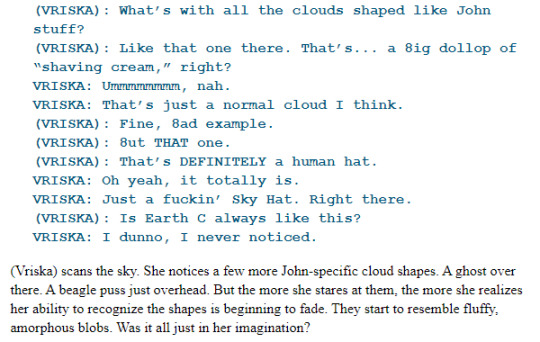
(Candy, 37)
John’s influence over the reality is so absolute, even the clouds bend to his will. I think Vriska only notices it because she’s a new arrival to Johntown. It isn’t long before she’s absorbed into the John-ness of the timeline. And then, she goes on to say exactly what I’ve been saying this whole time. Remember earlier, when I said Vriska knew that John had an incredible amount of influence over Things That Happen?
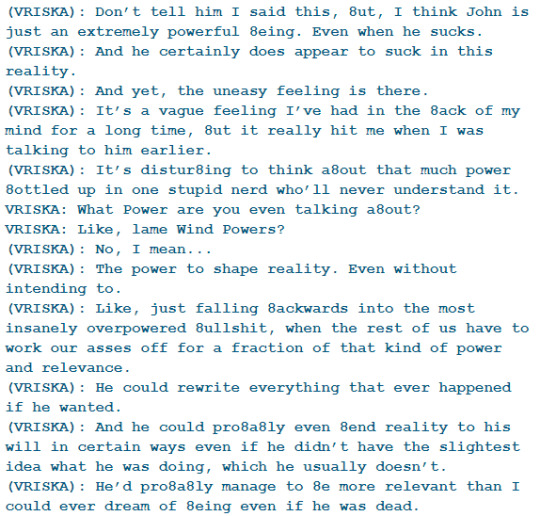
(Candy, 37)
Yeah. That wasn’t speculation.
The last thing she says, though, that he’d be relevant even if he was dead, is actually a reference to Meat. So let’s talk about it!
As we know, Meat is narrated by Dirk. Dirk’s narrative style is a lot of fun for me, personally. He’s sassy, kind of an asshole, and has no time for bullshit. The second John puts that meat in his mouth, he gets to work, pulling the strings of his little puppet show.

(Meat, 1)
He wastes no time putting words in John’s mouth, writing him out of the story of Earth C as quickly as possible. It’s almost with a sense of urgency that he pushes John to complete his mission. Which is probably necessary, seeing as the sanctity of canon relies on him going back to tie up the loose end that is Lord English. But I think Dirk has ulterior motives. I don’t think Dirk has the ability to impose his will so overbearingly with John around, because for some reason, John’s power of passive influence prevents him from doing so. Is John more powerful than Dirk, even after his ascension to Ultimate Selfhood? Maybe. I certainly think so.
But John’s pretty gullible. He’s easily influenced. He doesn’t have the same safeguard around his own mind, for some reason. Or maybe he does, and it’s just taken Dirk this long to crack him? This is speculation at this point. Not important.
So Dirk eventually kills John. Why? Well, first of all, it’s harder to control the narrative with him around. Though I speculate that’s not very important to Dirk anymore since he fucks off to who knows where around when John comes back. I think, more likely, Dirk finds John’s influence on the narrative unsavory. I mean, just look at Candy. What an absolute disaster of a timeline. Maybe his awareness is such that he knows that letting John live will result in a similar degradation of his friends’ personalities as he knows them. I can’t really say one way or another. It’d explain why he wants John’s body on the ship with him, though. Y’know, to make sure he never gets revived. And yes, he wants him on that ship. He pretty much tells Terezi outright to captchalogue his body before convincing her to join him.

(Meat, 35)
There’s one problem, though. I don’t think John being dead even erased his influence on the narrative?
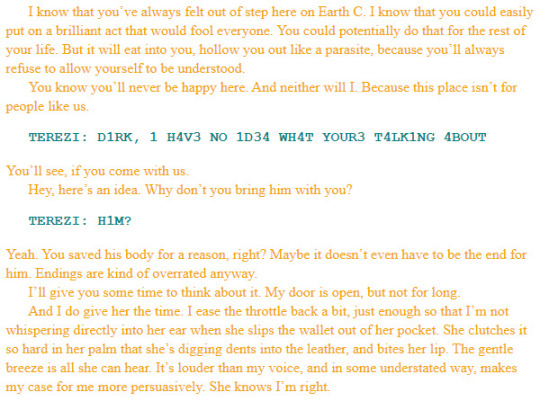
(Meat, 36)
Right there at the end:
The gentle breeze is all she can hear. It’s louder than my voice, and in some understated way, makes my case for me more persuasively.
I don’t think there’s any other way to read this than the breeze representing John. This is a literal manifestation of John’s influence. I guess it could be symbolic – like Terezi doing a “what would John do?” kind of thought process. But I dunno, Dirk doesn’t strike me as that kind of narrator. Besides... It’s a little too on the nose. Say what you will about the Epilogues, but I believe a great amount of care went into them. This certainly isn’t a throwaway line.
Conclusion
Okay, sorry. I really went off the deep end into Epilogues Analysis Land there. You may have noticed that I didn’t talk about Homestuck: Beyond Canon. That’s partly because I haven’t gotten there in my reread, but mostly because I’m not yet convinced that it has – or will have – nearly the level of plot consistency of its predecessors. We’ll see, I guess.
In any case... Breath as influence, huh? There’s probably more evidence for this hidden away somewhere. I probably could have talked about Rufioh. I didn’t want to though. I also probably could have pointed out the word inspire from the Extended Zodiac thing and called it a day, but instead I blacked out and wrote this. Weird!
If you read all, uh... *checks word count* 2.7k words of this??? Jesus fuck. If you read all this, thank you for reading. I’m open to feedback! I’d love to discuss some of this more! Especially the Epilogues stuff. I have a million thoughts. Bye!
#homestuck#homestuck epilogues#john egbert#tavros nitram#dirk strider#vriska serket#homestuck analysis#homestuck meta#classpect#classpect analysis#breath aspect#mine#will i ever write that vriska essay? the world may never know#thx yall
216 notes
·
View notes
Text
I think the hardest part about classpecting this group is going to be that I've read the whole manga but only half the show has come out. I'm going to avoid spoilers to the best of my ability for the aniem-only folks.
I guess I might just have to imply some of the stuff for later lol.
Anyways, let's dive right in starting with Marcille Donato!!
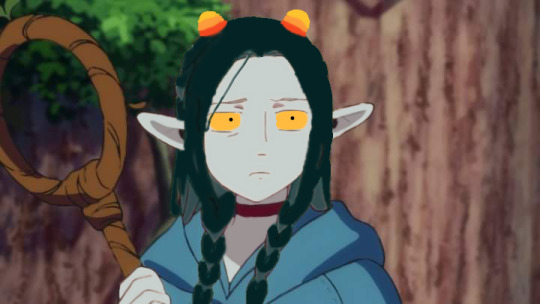
Our elven friend here plays a very interesting role in the little group! With Falin's absence, she's the only mage in the party (I suppose you could count Laios one he starts learning) and she's also quite often the "Straight man" of the group, being the voice of reason amongst a bunch of weirdos. That being said she has her fair share of wackiness! For one thing, she specializes in dark magic! It seems she mainly knows how to make stuff explode, some healing spells, some miscellaneous buff magic, and then a whole bunch of forbidden mumbo jumbo.
She is shown to be both caring and intelligent and is instrumental on the quest to rescue Falin. Probably her most notable moment comes when she finally gets the chance to employ some of that illegal magic and revive Falin.
With that out of the way:
Marcille is...
A Bard Of Doom!!!!
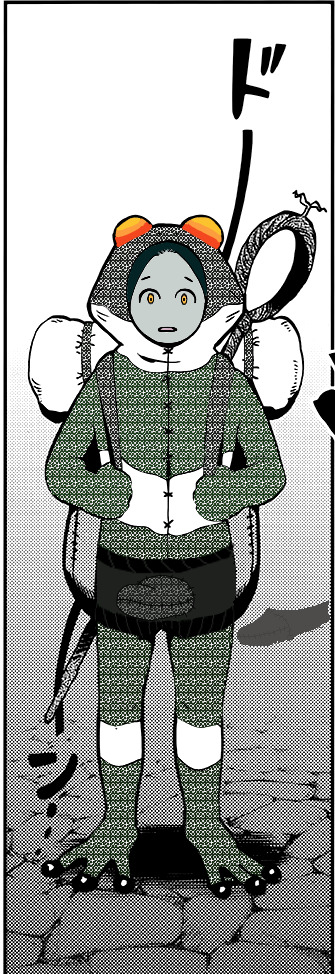
One who destroys [Doom]/one who invites destruction through [Doom]
Now, if you're done laughing, let's dig into this a bit more. Marcille very succinctly fulfills her role as Bard Of Doom, give me a chance to convince you. Take a look at Falin's revival. Marcille brings her back from the dead by employing forbidden magic; but she doesn't just undo her death, she undoes a death that is by and far insurmountable. This resurrection, whether purely her fault or not, results in Falin becoming a chimera and falling under Thistle's control. Shortly thereafter, Falin decimates the combined might of 4 adventuring parties.
As fun as these huge, all inclusive examples are, I also quite enjoy the more minor aspects that allude to her classpect. They're everywhere! For example: Marcille's distaste for eating monsters. Senshi's focus on the dungeon as an ecosystem. Marcille's constant resistance to participating in cycle this showcases how she continually tries to destroy the aspect of Doom in herself. She keeps herself removed from the cycle of life in the dungeon as much as possible.
There are more examples later on and unfortunately, I can't really go over them without spoiling the hell out of people. It really is a shame, but that's just how it is. So if you're anime-only, you'll just have to trust me. And if you've read the manga, then I'm sure you can instantly figure out what I'm talking about.
Alright folks! That'll be it for now, look forward to more soon! I'm planning on going thru the rest of the crew soon as well as answering some of the asks that have built up.
#homestuck#classpect#sburb#classpect analysis#homestuck analysis#bard#bard class#bard homestuck#bard of doom#doom#doom aspect#doom homestuck#god tier#dungeon meshi#dungeon meshi spoilers#delicious in dungeon#manga#anime#mage#marcille#marcille donato#marcille dungeon meshi#elf
73 notes
·
View notes
Text
Classpect Analysis Definitions Guide Combob
i read a Smashing aspect analysis by @/alicesonions (which this is very inspired by check it out right now the redesigned symbols are awesome) and wanted to revamp my own so here we go shaggy 2 dope classpect guide 2.0 (og draft here)
this is just a rundown on how i personally understand/use classpects even though i love talking my ass off and want to over explain all this i tried to write hopefully easily digestible and to the point definitions using key words and phrases bc thats how i personally learn things (i might make an extended version with further information and analysis later)
this can always be edited too i am So open to discussion criticism etc please tell me every single one of your thoughts about classpects in tags comments whatever I LOVE HEARING IT
anyway fat megapost ahead man the cannons
- - >
Classpects
A “Classpect” is a player’s title in Sburb, which uses the formula [Class] of [Aspect]. Not only does a Classpect dictate a player's reality-bending powers, but it defines a player’s place in their session, their place in reality, and their place within the narrative itself.
There are two components that make up a player's Classpect: their aspect and their class. There are 12 aspects and 14 classes in total. Hypothetically, ANY player could be ANY of the 168 total combos of these, no matter the person, but Sburb will narrow down the options and pick a player’s Classpect depending on how it thinks it can BEST use them in the game/their specific session.
A Classpect is chosen via a sort of “sorting hat” method. The person you are (struggles, goals, gaming strategies, how you interact with the world and others, etc.) inadvertently dictates your Classpect, but that is only BEFORE THE GAME STARTS. Once you’ve entered Sburb, Skaia will ultimately decide your role based on everything it gathered, and you are stuck with it whether you like it or not.
[In total: Classpects are a predetermined in-game role to fulfill as well as a narrative tool.]
Aspects
Aspects are described as “the basic building blocks of everything that exists within paradox space”; a cosmic property that relates MOST to a player and that they have the potential to BEST excel at.
A player’s aspect is always something the player starts out STRUGGLING with in some way. No one ever has total control or knowledge of their aspect right off the bat. It is something that challenges the player and must be learned over time so the player can grow and reach their full potential as a Hero of their aspect.
Aspects are a neutral and nuanced concept- no aspect is inherently good nor bad.
The 12 aspects: Breath, Light, Time, Space, Life, Hope, Void, Heart, Blood, Mind, Doom, and Rage.
Breath: The aspect of freedom and detachment. Breath is impossible to hold down, easy breezy, head in the clouds, go with the flow. Breath is breeze, movement, flight, weightlessness, indirection, and independence. Breath blows whatever way it feels like, not caring about much else.
Narrative connection: Plot development.
Breath’s opposing aspect is Blood.
Light: The aspect of knowledge and illumination. Light exposes the hidden, brightens the dark corners, brings things into the spotlight. Light is relevance, illumination, luck, enlightenment, sight, visibility, definition, and attention. Light brings itself to what is hidden in the dark.
Narrative connection: Plot relevance.
Lights opposing aspect is Void.
Time: The aspect of rhythm and destruction. Time is connected to death, the past and future, taking action, small details, the destination over the journey. Time is repetition, iteration, cycles, pace, patterns, preservation, decay, continuity, and management. Time is the steady tick of a clock, the constant rotation of an ever-turning gear.
Narrative connection: Pacing.
Times opposing aspect is Space.
[Time is one of the fundamental fabrics making up paradox space and is therefore an aspect required to win Sburb. If your session does not have a Time player, your session is doomed to fail.]
Space: The aspect of creation and beginnings. Space is new things, focused on the wait-and-see, the big picture, the here-and-now, the journey over the destination. Space is destiny, matter, physics, making, innovation, and intuition. Space is a vast endless infinity of possibility.
Narrative connection: Setting.
Spaces opposing aspect is Time.
[Space is one of the fundamental fabrics making up paradox space and is therefore an aspect required to win Sburb. If your session does not have a Space player, your session is doomed to fail.]
Life: The aspect of agency and autonomy. Life is foraging your own path, own destiny, self-direction, growing and strengthening. Life is nature, health, resilience, energy, progress, healing, vitality, and nourishment. Life sees its route and fights to take it.
Narrative connection: Agency/action.
Life’s opposing aspect is Doom.
Hope: The aspect of belief. Hope is dreams and wishes, blind optimism, unstoppable force, the "there’s always a way, nothings impossible". Hope is faith, possibility, positivity, will, imagination, and determination. Hope is a clear, enthusiastic "YES!".
Narrative connection: Convenience.
Hopes opposing aspect is Rage.
Void: The aspect of nothingness and the unknown. Void is a blank canvas, an empty page, a dark corner, a shadow concealing darkness. Void is secrets, mystery, invisibility, unexplained, ignorance, irrelevance, and uncertainty. Void obscures what the light can't reach.
Narrative connection: Plot irrelevance.
Voids opposing aspect is Light.
Heart: The aspect of feeling and self. Heart is the core of a person, their identity, passions and interests, the soul, feelings instead of thoughts. Heart is motivation, love, emotions, uniqueness, personal, individualism, bias, and passion. Heart follows itself.
Narrative connection: Inner self.
Hearts opposing aspect is Mind.
Blood: The aspect of unity. Blood is down to earth, grounded and chained, has expectations, forms relationships. Blood is community, responsibility, care, effort, stability, obligation, and connection. Blood is running through everyone's veins and knows it.
Narrative connection: Character dynamics.
Blood’s opposing aspect is Breath.
Mind: The aspect of thought. Mind is unbiased decision making, apathy, black and white, blends in with the crowd. Mind is equality, ration, logic, reason, judgement, calculation, choice, balance, and justification. Mind pushes away feelings and thinks instead.
Narrative connection: Outer self.
Minds opposing aspect is Heart.
Doom: The aspect of fate and constraint. Doom works within the rules, within restriction, follows damands. Doom is burdens, prophecy, acceptance, necessity, limitation, punishment, and misfortune. Doom does not negotiate against the inevitable.
Narrative connection: Conflict.
Doom’s opposing aspect is Life.
Rage: The aspect of refusal and rebellion. Rage is the ugly truth, holding back, immovable object, being stuck, “it’s impossible, there’s no way out”. Rage is cynicism, defiance, fury, negativity, anger, riot and revenge. Rage is a loud, guttural “NO!”.
Narrative connection: Contrivance.
Rage’s opposing aspect is Hope.
Classes
Classes are the second ingredient of the Classpect formula. Since an aspect is a cosmic property that relates most to a player, a class is how that player USES/INTERACTS with that cosmic property & its powers. Classes are NOT something a player struggles with and are just dictated by how they approach/play the game.
Classes are a neutral and nuanced concept- no class is a “worse/better” or “evolved” version of another, no class is gender locked, and no class is inherently good nor bad.
There are six functions of classes: creation, destruction, exploitation, manipulation, knowledge, and relocation.
[Creation: Bringing something into existence.
Destruction: Taking something out of existence.
Exploitation: Having something and using it.
Manipulation: Changing or altering something.
Knowledge: Knowing all about something.
Relocation: Stealing and/or moving something.]
The 14 classes: Heir, Seer, Knight, Witch, Maid, Page, Rogue, Prince, Mage, Sylph, Thief, and Bard, and the two master classes: Lord and Muse.
Heir: One who changes with their aspect or is changed through their aspect. Heirs inherit their aspect and can greatly use it for their session and coplayers.
Class function: Manipulation.
Heirs' counterpart class is Witch.
Seer: One who knows their aspect or knows through their aspect. Seers are knowledge-seekers who obtain information by observing, and guide their coplayers using what they learn.
Class function: Knowledge.
Seer's counterpart class is Mage.
Knight: One who fights for/protects their aspect or fights/protects using their aspect. Knights are set on serving and defending their session and coplayers, using their persona as a shield and their aspect as a weapon.
Class function: Exploitation.
Knight's counterpart class is Page.
Witch: One who alters/bends their aspect or alters/bends using their aspect. Witches utilize their powers to bend the rules and test the limits of their aspect and session itself.
Class function: Manipulation.
Witch's counterpart class is Heir.
Maid: One who serves/repairs their aspect or serves/repairs with their aspect. Maids clean, preserve, and maintain their session with/and their aspect, just as a housekeeper would.
Class function: Creation.
Maid's counterpart class is Sylph.
Page: One who strengthens their aspect or finds themselves through their aspect. Pages start out as weaker underdogs, but once their potential is fully realized, they can use their power to an astounding degree.
Class function: Exploitation.
Page's counterpart class is Knight.
Rogue: One who steals their aspect or steals from their aspect to provide others with it. Rouges take from their aspect and redistribute what they steal to their coplayers Robin Hood style.
Class function: Relocation.
Rouge's counterpart class is Thief.
Prince: One who destroys their aspect or destroys with their aspect. Princes are powerful, blunt forces in their session who once fully realized, will stop at nothing until they reach their goal.
Class function: Destruction.
Prince's counterpart class is Bard.
Mage: One who understands their aspect or understands through their aspect. Mages are the experiencers of their aspect that utilize their experience with it to guide themselves.
Class function: Knowledge.
Mage's counterpart class is Seer.
Thief: One who steals their aspect or steals from their aspect to keep themselves. Thieves are focused on taking from their session and others in it, then keeping that power for their own benefit.
Class function: Relocation.
Thief's counterpart class is Rogue.
Sylph: One who heals/mends their aspect or heals/mends using their aspect. Sylphs are vastly supportive to their coplayers through both backstage influence and personal interference.
Class function: Creation.
Sylph's counterpart class is Maid.
Bard: One who allows the destruction of their aspect or invites destruction through their aspect. Bards can be kind of a wildcard for their session, possibly for the best (or the worst).
Class function: Destruction.
Bard's counterpart class is Prince.
Master Classes
Lord: One who rules their aspect or rules using their aspect. Lords are intensely powerful domineers who command their aspect, session, and everything in it to bow down to them.
Lord's counterpart class is Muse.
Muse: One who inspires their aspect or inspires through their aspect. Muses are completely in tune with their aspect and influence their session with it, leading it like a conductor with their baton.
Muse's counterpart class is Lord.
329 notes
·
View notes
Text
A Detailed Overview of Classes
-aortaObservatory
The Classes of Homestuck are left up to interpretation; they were designed for the characters who hold their titles, and as such, there is inherent bias within them even within canon. Like many other classpectors, I believe they can stand alone, beyond how canon defines them (and, if I am being honest, beyond the sheer lack of canon material for them). It is simply a matter of straining out what they are defined to be in canon from the characters, and from those strains, foraging in the same direction based on a number of factors (such as the class's pair and inverse pair).
In this post (A Brief Overview of Classes), I gave brief statements of what each class was and what it did.
In this post (A Look Into My Classpecting Process, with a focus on Karkat), I explained how I initially defined the classes as based on my understanding of the aspects, comparing the characters who held the same titles and stripping away all that differed between aspect and character trait until only "class" remained. From this, I defined each class beyond their canon bias and fully fleshed them out.
In this post, I will attempt to go into a bit more depth for each class, defining certain classes as active/passive, and explaining why their pairs are what they are, how they work, as well as what they do. How I classify the classes is in a trio of quadrants (four classes to one group, with three groups for a total of 12 classes). Three groups of four.
This is my overview of the classes. My interpretation.
To define: Class is the intended role of the player; how they interact with or are shaped by their aspect, either actively (directly) or passively (indirectly). Active-Passive class pairs are defined by a primary word that dictates what they do, and the quantity of the hidden secondary word that dictates the difference between the pair.
Primary words: Know, Change, Utilize, Allocate, Enhance, Destroy
Secondary words: Experience, Embody, Skill, Value, Reliance, Control
Know - Do or Do Not have Experience
Change - Do or Do Not Embody
Utilize - Do or Do Not have Skill
Allocate - Do or Do Not Value
Enhance - Do or Do Not have Reliance
Destroy - Do or Do Not Control
Perception Classes - Know and Change
perception: "immediate or intuitive recognition or appreciation, as of moral, psychological, or aesthetic qualities; insight; intuition; discernment."
The "Knowers" are those who do (Mage) or do not (Seer) have experience with their aspect. The Mage directly has too much experience with their aspect, while the Seer indirectly has too little experience with their aspect by being surrounded by their inverse aspect. In other words, a Mage knows, and a Seer does not know.
Mages are flooded with their aspect, uniquely experiencing both the good and the bad of it. As a result, they gain a unique understanding of what their aspect is or does, often resenting it or becoming jaded and frustrated with it, but never rejecting it. Their challenge is to become open to new insight or different perspectives than their own.
Seers study their aspect, craving knowledge of it from their previous lack of it. They seek knowledge of their aspect with a fierce intensity in order to gain more understanding of it, acknowledging the potential consequences of doing so and dealing with them later. Their challenge is to learn how to translate their insight and knowledge into action and decision, as well as learn how to manage their engagement with their aspect so as to not overwhelm themselves or others.
The "Changers" are those who do (Heir) or do not (Witch) embody their aspect. The Heir indirectly embodies too much of their aspect, often unintentionally or by getting stuck on some part of their inverse, while the Witch directly embodies too little of their aspect by picking and choosing what to embody and what not to embody. In other words, a Witch changes, and a Heir does not change.
Witches are self-assured and conclusive individualists. They pick and choose which parts and pieces of their aspect fit into their own already determined desires, making their aspect embody themself and changing it to suit their own wants and needs. Their challenge is to achieve a stable balance in themselves without losing themselves to their aspect or their own changing whims.
Heirs inherit and embody their aspect, allowing their aspect to change themselves or itself. They have huge amounts of aspect related strengths, allowing themselves to be surrounded by their aspect or naturally gravitating towards it. Their challenge is to not get stuck on their aspect, to know when to move on and change themselves to keep themselves balanced.
Inverses:
The Mage and the Heir are inverse classes; for example, a Mage of Doom is also an Heir of Life (inverse), and an Heir of Breath is also a Mage of Blood (inverse). A Mage has too much experience with their aspect, and as a result, fully embodies and gets stuck on their inverse. An Heir fully embodies and gets stuck on their aspect, and as a result, has too much experience with their inverse.
The Seer and the Witch are inverse classes; for example, a Seer of Light is also a Witch of Void (inverse), and a Witch of Space is also a Seer of Time (inverse). A Seer doesn't have much experience with their aspect but is surrounded by their inverse, and as a result, picks and chooses pieces of their inverse to embody to further their study. A Witch chooses pieces of their aspect to embody and ignores what they don't want to embody, and as a result, doesn't have much experience with their inverse and thus gains a desire to study it to fill in their missing pieces.
Alignments:
Those who Know (Mage, Seer, knowers pair)
Those who Change (Witch, Heir, changers pair)
Those who do experience and embody (Mage, Heir, inverse pair)
Those who do not experience and embody (Seer, Witch, inverse pair)
Those who directly Know/Change (Mage, Witch, active pair)
Those who indirectly Know/Change (Seer, Heir, passive pair)
Volition Classes - Utilize and Allocate
volition: "the act of willing, choosing, or resolving; exercise of willing"
The "Utilizers" are those who do (Knight) or do not (Page) have skill with their aspect. The Knight directly has too much skill with their aspect, while the Page indirectly has too little skill with their aspect, often focused on compensating for the lack of their inverse. In other words, a Knight utilizes, and a Page does not utilize.
Knights are extremely adept with their aspect, their driving effort to protect it and others through it. They are loyal to their aspect's cause and naturally gifted with it, using it as a tool to achieve whatever they set themselves to. Their challenge is to learn how to be less harsh on themselves, to accept and learn from failure, and to accept the assistance of others when they need it.
Pages start unskilled in their aspect, learning how it works and how to use it to its full potential over time. In their many attempts to master their aspect, they teach others the value of their aspect, becoming an unintentional source of inspiration. Their challenge is to keep at it, learn from failure, and eventually master their aspect, being able to confidently provide their aspect to others.
The "Allocators" are those who do (Rogue) or do not (Thief) value their aspect. The Rogue indirectly values too much of their aspect, giving it away until there is nothing left within themself, while the Thief directly values too little of their aspect by taking it without caring for it. In other words, a Thief allocates to themself, and a Rogue does not allocate to themself.
Thieves take their aspect, either craving it fiercely from their lack of it in their lives or simply because they like it, stealing and hoarding it all for themselves and their own personal benefit. Despite their outward confidence with their aspect, they often take it at face-value without learning of its true value, being unsatisfied with how much of their aspect they hoard and craving more and more. Their challenge is to focus less on attaining and more on learning about the value their aspect, as well as to let others have their aspect and learning why it is important to others.
Rogues give their aspect away, either because they have a lot of it already, or are able to get it so easily they don't know what to do with so much of it. They often know the true value of their aspect, and are able to see where there is too much or too little of their aspect and redistribute it in a balanced way around themselves. Their challenge is to not let their aspect run dry within themself, and to learn how to healthily balance their aspect in themselves.
Inverses:
The Knight and the Rogue are inverse classes; for example, a Knight of Time is also a Rogue of Space (inverse), and a Rogue of Void is also a Knight of Light (inverse). A Knight has too much skill with using their aspect, and as a result, fully values their inverse and gives it away to others. A Rogue fully values and gives away their aspect to others, and as a result, has too much skill with using their inverse.
The Page and the Thief are inverse classes; for example, a Page of Breath is also a Thief of Blood (inverse), and a Thief of Light is also a Page of Void (inverse). A Page doesn't have much skill with using their aspect, and as a result, seeks their inverse because they think it will come easier to them (an act which ignores the value of the inverse). A Thief desperately craves their aspect for their lack of value towards it (or additionally, a physical lack of it), and as a result, doesn't have much skill with using their inverse.
Alignments:
Those who Utilize (Knight, Page, utilizers pair)
Those who Allocate (Thief, Rogue, allocators pair)
Those who do have skill and value (Knight, Rogue, inverse pair)
Those who do not have skill and value (Page, Thief, inverse pair)
Those who directly Utilize/Allocate (Knight, Thief, active pair)
Those who indirectly Utilize/Allocate (Page, Rogue, passive pair)
Passion Classes - Enhance and Destroy
passion: "any powerful or compelling emotion or feeling, as love or hate"
The "Enhancers" are those who do (Sylph) or do not (Maid) have reliance on their aspect. The Sylph directly has too much reliance on their aspect, while the Maid indirectly has too little reliance on their aspect, often told how to think of it or forced to rely on others instead. In other words, a Sylph enhances, and a Maid does not enhance.
Sylphs start off relying on themselves for their aspect, attempting to heal, restore, and enhance their aspect in others. They are a pure source of their aspect for others, and though this can cause frustration and irritation in themselves and others, they can see ways for their aspect to help and heal the struggling of others. Their challenge is to learn how to listen to the needs of others instead of assuming they know best, and to balance themselves by learning that it's okay to rely on others for their aspect sometimes.
Maids start off pushed around by others' view of their aspect, but eventually allow their aspect to heal, restore, and enhance themselves, making them into an entirely new person and purifying their aspect to themselves. They start out relying on others for their aspect or being told by others how to interact with their aspect. Their challenge is to listen to themselves instead of others, and to not let others opinions dilute their aspect as they restore it for themselves and allow it to make them into a new person.
The "Destroyers" are those who do (Bard) or do not (Prince) have control over their aspect. The Bard indirectly controls too much of their aspect, often avoiding it to the point of deterioration, while the Prince directly controls too little of their aspect, generating frustration and anger with which to destroy. In other words, a Prince destroys intentionally, and a Bard does not destroy intentionally.
Princes destroy their aspect with their aspect or in the name of their aspect, and as a result, often end up appearing as their inverse aspect at first glance. Princes start off with disdain or hate for their aspect, likely because of its overwhelming presence in their lives, and because despite its abundance, they can never seem to grasp or control it for themselves. Their challenge is to be able to recognize their aspect's presence in themselves before they destroy themselves beyond repair, and learn that they do not need to control or bend their aspect to their will.
Bards allow their aspect to be destroyed via simply not reaching out for it, and ignoring its presence in their lives, leading to them appearing as their inverse aspect at first glance. This is typically due to stubbornness and/or a fear of being controlled by their aspect; while they may see benefits to what it could offer them, they can also see all the downsides to it simply because of their fear of what could go wrong. Their challenge is to be able to embrace their aspect and not be ruled by its whims, learning to control the way it impacts themselves without letting it be destroyed.
Inverses:
The Sylph and the Bard are inverse classes; for example, a Sylph of Space is also a Bard of Time (inverse), and a Bard of Rage is also a Sylph of Hope (inverse). A Sylph has too much reliance on their aspect and themself, and as a result, allows their inverse to deteriorate out of stubbornness and/or fear of it. A Bard has too much control over their aspect but allows their aspect to deteriorate from their own stubbornness and/or fear of it, and as a result, has too much reliance on their inverse.
The Maid and the Prince are inverse classes; for example, a Maid of Life is also a Prince of Doom (inverse), and a Prince of Hope is also a Maid of Rage (inverse). A Maid doesn't have much reliance on their aspect or themself because they are surrounded by their inverse, and as a result, destroys their inverse in an attempt to purify themself. A Prince has too little control over their aspect despite being surrounded by it, and in their attempts to make their aspect obey, doesn't have much reliance on their inverse.
Alignments:
Those who Enhance (Sylph, Maid, enhancers pair)
Those who Destroy (Prince, Bard, destroyers pair)
Those who do have reliance and control (Sylph, Bard, inverse pair)
Those who do not have reliance and control (Maid, Prince, inverse pair)
Those who directly Enhance/Destroy (Sylph, Prince, active pair)
Those who indirectly Enhance/Destroy (Maid, Bard, passive pair)
38 notes
·
View notes
Text
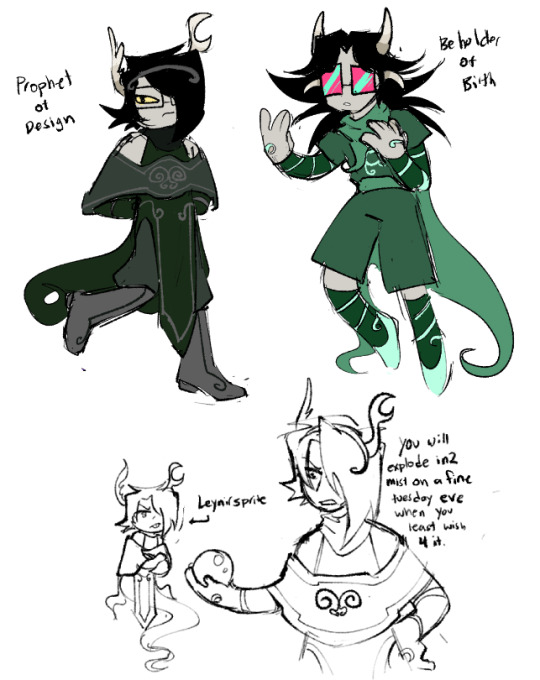
even MORE sillies from @superxstarzz's classpect fusions!! this time with a wee bit of analysis below the cut because i have the evil homestuck autism that makes me go crazy about this stuff. also the reason these guys look freaky is because theyre a human+troll fusion
OKAY SO generally i imagine fusedtiers would naturally be far stronger than a regular tier, though not quite as strong as a master class, at least depending on the development of each. They are also, of course, far more specific in nature, leading to highly specialized roles. Anywho, here's my interpretation of the classes featured here. I'll probably end up doing more later. Apologies in advance for my wordiness. I know there's a lot of speculation about the role mages play, so I'll provide a brief explanation of how I interpret them first.
Mages, in my opinion, are the active counterpart to seers, being able to take the knowledge they gain through or recieve from their aspect and put it into action. For an example, a Mage of Space as is a component here would be able to take the knowlege of the behaviors of elements and atoms, and be able to manipulate them at their will, provided they know what they're doing, and it's physically possible, alongside being able to ascertain. This can be seen with Meulins ability to form relationships out of seemingly nothing and Sollux's pension for causing doomsday esque events (aradia, sgrub, the like)
Prophet of Design
Prophets, in my opinion, would take the prediction abilities of the seer and the active knowledge mages can use and be able to speak events into reality.
Prophets tend to be extremely high strung people. The suffering that comes with being a mage and the all-consuming knowledge that comes so easily to seers create a scenario in which it's very common for them to slip into anxiety about the events they cause. The butterfly effect, if you will. Prophets do not use their powers carelessly, each move is thought out and incredibly calculated. Prophets are, naturally, blindingly intelligent, being the fusion of the two knowing classes. This can manifest itself in many ways, though the shortcomings mages often experience in relation to their aspect can often cut down their confidence, leading to a prophet underestimating themselves constantly. Despite their anxious tendencies and low self-conciousness, prophets can also be very snarky and sarcastic, when not gleefully oversharing about whatever piques their interest at the moment.
Design would be the merging of the concepts of fate and inevitability with the universe, creation and physics. Design players have domain over the physical outcomes of things. Reactions, from chemical to physical, even quantum at a higher level, all of that is within the control of a Design player. So!! i think a Prophet of Design would be able to speak into reality the outcomes of reactions they create or observe. For example, prophet would be able to do something like say "when i take a step forward, I will actually be twelve feet ahead of where i would have been" and just have that shit happen. As they get stronger, their prophecies can becomem more long term and more drastic, from being able to speak into reality an event that will happen some time in the future to prediting events that might not even be physically possible normally. Beholder of Birth
A beholder, a class that combines the insane growth potential of a page and the mage's expansive knowledge to produce a role of one that is able to expotentially build on the knowledge they have of their aspect. To create entire knowledge trees given the smallest bit of information. From a basic fact to the most niche, minute detail, none of it can escape the gaze of a Beholder. A fully realized Beholder would know, quite literally, everything there is to know when it comes to their aspect, which can be an enormously vast amount when it comes to Space or Time players.
Beholders are natural detectives, though it never comes easy. It starts as the beholder starts to make connections, faint at first but with a sure sign there's something more. Often ones to second-guess their findings, but once they dig deeper, and their ideas are validated, there's nothing stopping a beholder from uncovering everything there is to know from that one initial spark. For lack of a better word, beholders are quirky people, kind but stubborn, and their ascenion often is hindered by that trait due to the help they might need at first. They might get knocked down easily at first, but are wickedly determined, and bounce back quickly and eagerly learn from their mistakes, often brute-forcing their way out of problems. Thanks to the manipulation of knowledge that comes with their Mage counterpart, rising the ranks is far easier for a Beholder than a Page, though roadblocks are to be expected with their headstrong attitude towards growth.
Birth is the merging of creation, physics and the universe with the mind, logic and raw information. I think these would blend into birth players being in control of the inception of very nearly anything. How exactly they can control this depends on the class, of course, but birth players hold the essence of creation in their very soul,
A Beholder of Birth would have the ability to hold an object and see everything that lead up to its creation, how it was created, and everything that happened to it. Not just objects either, but people and other living things. A fully realized Beholder of Birth could potentially have the full knowledge of everything that has ever happened in the universe, from before the big bang to the very end of it that was no doubt caused by the activation of SBURB and everything in between.
86 notes
·
View notes
Text
Veritas Ratio: The Rogue of Light
Rogue: The passive stealing class
One who steals aspect for others
Alternatively, one who shares or one who redistributes aspect with others
Light
Abstract: Knowledge, Awareness, Attention, Relevance, Fortune, Luck
Literal: Actual Light (Brightness), Vision, Eyes, the Sun, Stars

This is gonna become a series isn't it?
It is. Now let's get going on discussing everyone's favorite interstellar scholar: Dr. Veritas Ratio!!
Let's get the obvious out of the way: His aspect.

Light is more commonly known as the aspect of knowledge. But instead of talking about he’s light-bound personality wise, why don’t we shake things up a bit? We know that he's a smart and knowledgeable man, but what more can his aspect offer for us aside from that?
To fit with Ratio's Greco-Roman theming, I'll briefly discuss the World of Ideas in Plato's allegory of the Cave.
Forgive me to if I do get the allegory wrong and please feel free to correct me!
The gist of this is that ordinary people are like prisoners chained to a cave, only able to perceive reality through shadow puppets and the distorted noises that bounce off the cave walls. These prisoners were born in the cave and had been raised in the cave, not knowing anything else outside of it; ignorance. It's only when they break out of their chains do these prisoners start their path to enlightenment and they achieve it so once they see the bright sun outside of their cave; the World of Ideas.
Ratio seeks to break everyone from the chains of ignorance and guide them towards enlightenment through spreading his knowledge throughout the universe.

Ratio is the man who would forcefully break the prisoners' chains and nudge them towards the light, as much as he could anyways.
And for one specific character, he hopes it is enough.

We'll get back to him later! Next I want to talk about is Ratio and his connection to Christian Gnosticism, which likely had served as inspiration for the concept of the Light aspect in Homestuck. I will be borrowing ideas from one of optimisticDualist's essays so I highly recommend giving it a quick read before continuing onward.
According to Gnostic myth, the world was created through the desires of an aeon named Sophia, an Emanator of light. I should also note that the Greek word for wisdom is Σοφία.
Sophia longed to understand God in His entirety, but in doing so she committed treason and was thus cast out of heaven. Her desire gave birth to Yaldabaoth: a blind, violent, and ignorant god who knew nothing but himself. He created the material world that you and I perceive, shielded from the light of Sophia that birthed him. Because a blind god made the world in his image, the denizens of his earth are also blind to Sophia.
So what do banished gods have to do with the purple guy?
Well, just like Archimedes and screws, things come back around. In order to save yourself from Yaldabaoth’s world, one must be delivered a certain knowledge that is delivered by a “messenger of light” and thus gain the ability to perceive Sophia and her World of Ideas.
In other words, salvation can be sought in what Gnosticism calls a gnosis.
However, one cannot just simply be gifted a gnosis. Those who seek Sophia’s salvation must be driven to reach it, reach beyond the Demiurge’s dark and imprisoning world and into the intangible, bright world above.
Doesn’t that sound familiar?

By Gnostic definition, Ratio should be an Emanator of wisdom, helping curing others of ignorance and helping them on their way towards enlightenment. Hell, you can even say that he's a sylph with all the constant allusions to healing and helping, especially since that Ratio's a Doctor.

However, we all know that this isn't true. Within Ratio's character stories, it can be inferred that his one goal in life is to become an Emanator of the Erudition. His arduous pursuit of knowledge was likely all in hopes in attracting Nous' gaze.
Yet, despite all his efforts, Ratio was never spared a glance

Dr. Ratio is a model Emanator of wisdom by Gnostic standards, yet within his own universe his Aeon of Erudition does not acknowledge him. No matter how hard he tries, he will never reach the status of a member of the Genius society, almost as if he wasn't destined to be a part of it.
Let’s talk about his class: The rogue.
Rogues in Homestuck are the outcasts of their societies. They're loners, isolated, unable to fit in with the groups they want to identify in.
Rogue of Heart Nepeta Leijon lives alone in Alternia's wilderness far from troll society with her lusus as her only companion that is physically close to her.
She's been explicitly described as lonely, creating comics and ships of herself and her friends in order to mitigate her feelings of isolation from other trolls:

Then there's Rogue of Void Roxy Lalonde, who for her first 16 years of life was the only human within her town of carapaces, whom she provides food for. The only other human in her post-apocalyptic world is more than 1700 miles away.
Being a Void-Bound, her isolation is very much apparent, but her loneliness reaches its apex during her bad end in her Pesterquest route. Drinking herself to a stupor as the undeserving consequences of seeing her mother just once consumes her.
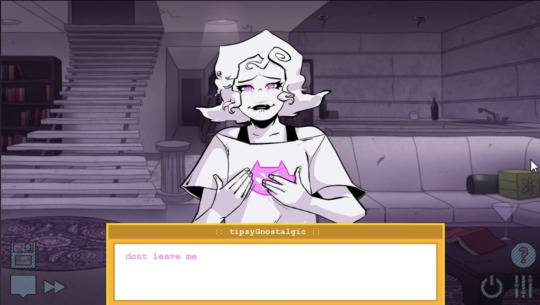
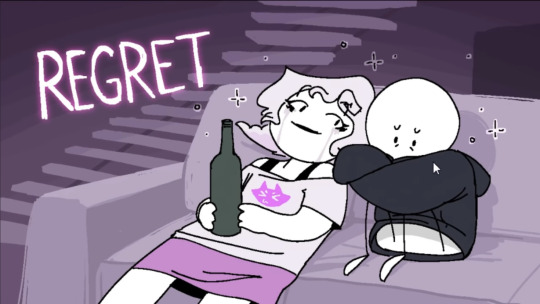
And then Rogue of Breath Rufioh Nitram, who was seen as a mutant for his wings and thus was avoided by his fellow trolls, which took a blow on his self-esteem.

Rogues also struggle with a surplus of their aspect and trying to cope up with that extra while it consumes them. Nepeta taking on the personas of other people through roleplaying, as well as her cave walls being covered in shipping grids. Rufioh living a literally directionless grubhood as travels with a nomadic group called the Lost Weaboos, not to mention his wings, a symbol of freedom, being the cause of why he views himself so lowly. And then there's Roxy, who feels so alone in the carapacian bastion that she fills that void with insobriety, befuddling her mind.
So what does this have to say about Dr. Ratio? All three rogues here have exhibited some type of self-worth issues and a desire to connect with others, but due to being so engulfed by their aspect, it hinders them from reaching that goal...
What if tiny Ratio exhibited such intellect at such a young age that throughout his childhood, he was told that he would be a great scholar growing up? Maybe his genius would earn him a spot within the Genius Society. He was even admitted into a university during his adolescent years.

As that is impressive as that sounds, can you imagine how isolating that can be for a child? Ratio, the only kid in class with his classmates years above him, talking about things outside of academia that he's too young to understand. Meanwhile Ratio likely doesn't interact with those his age as they couldn't provide anything to stimulate his brain. It could also be vice-versa too: Ratio trying to talk to them about topics far beyond their comprehension and they just start to distance themselves from him, unable to understand him, making an outcast out of him.
His intelligence and genius isolates him from making any genuine friendships during his formal years of life. At least, any that we know of before 2.1.
This loneliness does seem to follow him well into his adulthood as well: Becoming a celebrity comes with its own flavor of isolation: being surrounded by the limelight yet no one will truly understand you.
And let's not forget about his ambitions to become an Emanator of the Erudition, to become a member of the Genius Society, which he fell short of...

...something that he holds quite close to his chest, a betrayal of his self-perceived character. He became yet, once again, an outcast.
Another thing, I want you guys to got to Ratio's wiki real quick and see how many characters mention him.
How many people do you think were close to Ratio?
Within the team selection menu of Star Rail, Ratio has lines for when he's added to a team with Ruan Mei and Herta, yet the reverse isn't true. Both Genius scholars say nothing when added to a team with Ratio already in it, almost as if they don't acknowledge him.
There is, however, only one character who says something when added to a team with the Mundanite already in it.
Can you guess who it is?
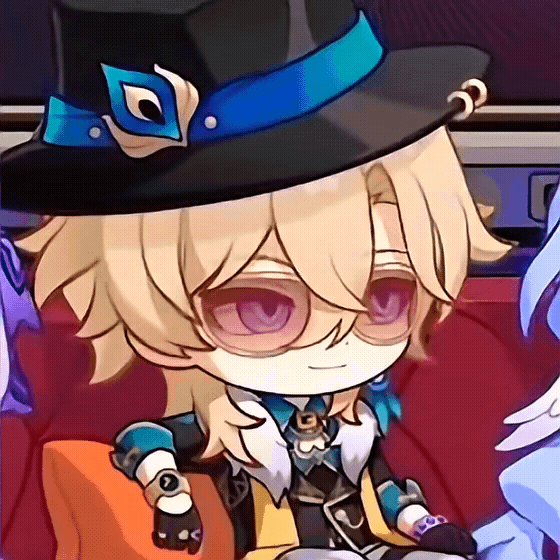
But, as for all classes, their lives aren't meant to be miserable forever. A Rogue must find a way to overcome this loneliness; piecing through the walls of their confines made of their aspect. Instead of just keeping all their aspect for themselves like their Thief counterpart, Rogues find fulfillment through sharing their aspect, often by taking it from one source and distributing it to others. Or in some cases, exchanging something else in order to hand out.
And after all this, I dare say that Ratio joining the Genius Society would be the worst mistake he'd ever make. Stay with me, I have my reasons:
Though we never got to see much of Nepeta in action, we know that she distributes Heart through her shipping chart, arranging couples, distributing aspects of their personalities to see who would go together the best.
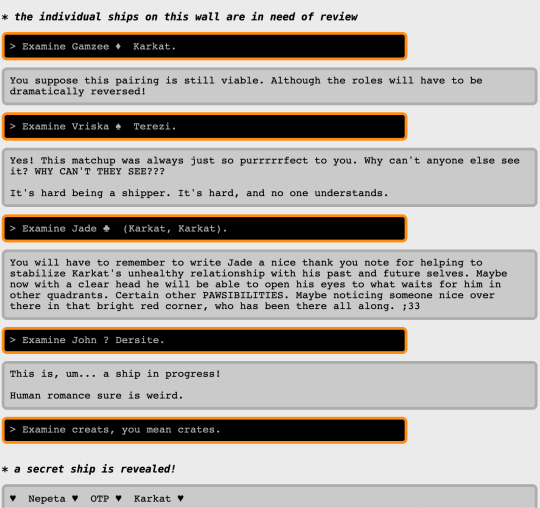
The amount of thought that she puts into her ships puts a Sylph of the same aspect like me to shame!
I digress.
In exchange of bringing attention to the Watterbitch that's about to destroy their game, Roxy was able to obscure the progression of her session from prying eyes, covering it in a blanket of blankness in order to keep Batterwitch from knowing what they're up to.

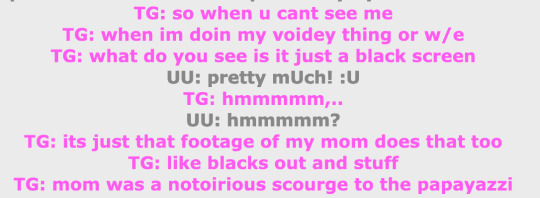
And then for Rufioh, his Alternian counterpart The Summoner lead a rebellion against the Condecse, using his wings to guide his fellow trolls towards freedom.
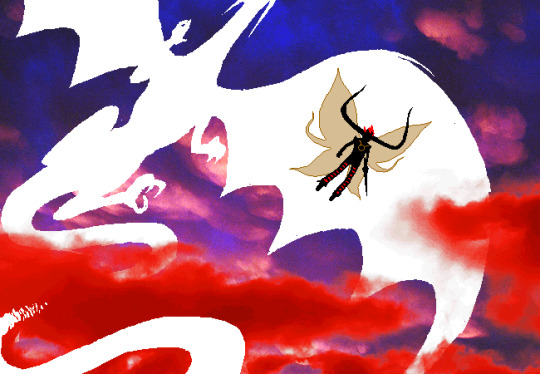
And even after his defeat, his tale lives on as Pupa Pan. While the tale of his rebellious predecessor the Signless is silenced and therefore lost to obscurity, the Summoner's story lives on, allowing the idea of freedom to flow into the mind of young trolls.
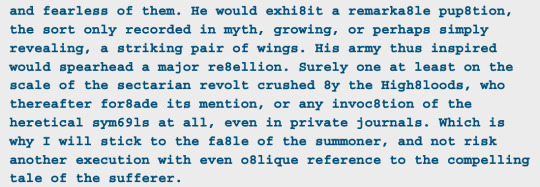
Dr. Ratio's entire character is dedicated to making education accessible for all. Though some of this does end up into his desire to cure people of idiocy, Ratio does truly believe that everyone should get a chance to attain knowledge. I'd even say that his ambition is the reason why he became a professor!

Ratio would dedicate his life towards his goal towards sharing knowledge, even if it meant forsaking Nous' attention in exchange.
His path also affirms this drive. One would expect that someone as knowledgeable as him would be following the path of Erudition, but instead Ratio follows the Hunt.

Ratio's determination to educate, his determination to spread light across the universe manifested into the path he follows. Even if he's never accepted by the Genius Society, he won't let that hinder him or dampen his drive. Ratio just simply strides forward.
The people who make up Nous' faction are described as researchers that rarely interact with each other, and even rarer are the people who are willing to share their research. Ratio would have never found fulfillment in being a member of the Genius Society, I'm almost certain that by joining it he would just be seeking out more and more knowledge, more and more light, becoming more and more isolated.
And one more thing: Rogues are fond of those who manage to get close to them. They appreciate their company and are incredibly dear to them.
For Nepeta, she has Equius.
For Roxy, she has Calliope.
Rufioh had Damara and the Summoner had the Marquise.
So who does Ratio have?
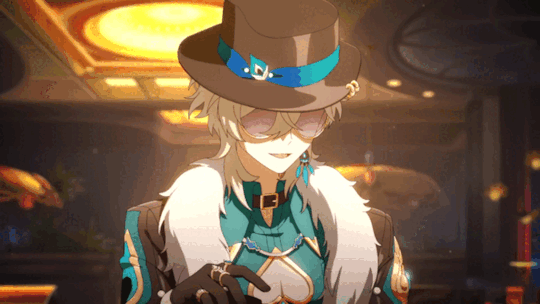
Even outside of a shipping lens, Aventurine is a very important person to Ratio. The 2.1 Penacony story quest demonstrated how much in tandem these two can be together; how much they trusted each other to pull off this huge gamble and draw attention to the death happening in the Planet of Dreams and Festivites. Luck and Knowledge, they both work in perfect harmony.
Aventurine calls him his equal during his episode in “Keeping Up with Star Rail”, claiming that Ratio’s the only one who can understand him.



Ratio and Aventurine must have something closer than just mutual respect however. Before Aventurine goes off into his grandiose self-annihilation, he checks up on him. He risks breaking their façade of disgruntled-coworkers-at-best just to make sure Aventurine can continue on.

Ratio does care for the Stoneheart. So much so that he imparts luck to quite literally the luckiest man alive in hopes that his advice will carry him out of the darkness that he’s in and back into the light. Bringing him out of the blinding Nihility and back into the World of Ideas, back into reality.
And it makes this note all the more important when Aventurine accepts Ratio’s advice, accepting his light when most would brush it off.
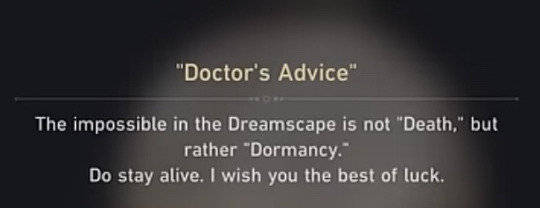
Ratio is a bright person, yet most cannot see past his luminosity and at the same time, he can’t shine bright enough to attract those he aspires to be. To remedy this, the Rogue of Light distributes his lights to others who needs it. He wants to cure those inflicted with ignorance and guide them towards enlightenment.
Knowledge for knowledge’s sake is not his Ratio rolls. His altruism may go against what the Genius Society believes in, but he wouldn’t change his ideals for anyone, steadfast in his determination to cure idiocy.
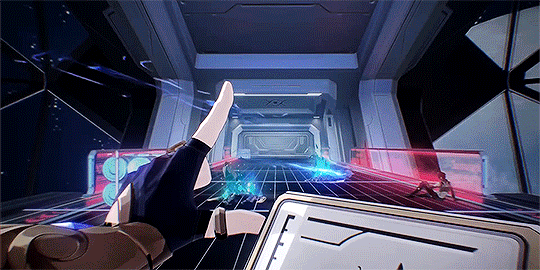
#homestuck#godtiers#classpect#classpect analysis#rogue of light#light aspect#rogue class#hsr#honkai star rail#hsr dr ratio#dr ratio#dr ratio honkai star rail#aventurine honkai star rail#ratiorine
73 notes
·
View notes
Note
sir ptopheticclown, onto actual questions now from me
would be awesome to hear your speculations and ideas about the bard class since i find your rant(?) posts really cool! and i just feel like bard as a class isn't talked enough about and im trying so bad to make a bard oc
I’m actually very glad you asked! So essentially Bard, like Prince, is a destroyer class. However it is the passive version of Prince. So where Prince destroys stuff directly (Ex. Eridan destroying the matriorb, Dirk destroying Aranea’s soul, Kurloz destroying the Alpha Trolls motivation). Bards destroy in a more elaborate, for example, Gamzee in Murderstuck goes through an elaborate series of loops to make Terezi kill Vriska.
Although that isn’t saying that Bard’s can’t be direct about destroying things. Where Princes suffer from an over abundance of their aspect, Bards moreso have very little of their aspect. Think of it like a seed. At first, they’ll ghost their aspect simply because they don’t have enough of their aspect, however eventually, that seed will grow into a deranged tree of epic proportions. Like how we see with Gamzee in Murderstuck or Cronus with his…well let’s be nice today and just say “outbursts”.
Essentially, a Bard should outwardly lack their aspect until an inciting incident occurs which forces the Bard into a crisis where they either sink into the lack of their aspect (which Cronus did by choosing to abandon his belief in magic) or swim and propel themselves into their aspect by 1000000% (like Gamzee did by quite literally killing 2 trolls, emotionally ruining Terezi, and bringing destruction through Lord English).
Bards are very fun classes although there’s not a lot of info on them so take my analysis with a grain of salt. Thank you for the ask :)
#homestuck#classpect#classpect analysis#bard#gamzee makara#cronus ampora#tw cronus ampora#rage aspect#hope aspect
13 notes
·
View notes
Note
I don’t know if anyone has pointed this out yet but your sign is sign of “The Fixer” right? And I think that’s so cool considering you made a really amazing FIX-it AU. :33
Oh thanks but the sign is actually made up thow the "Scorsci=The fixer" does look kinda similar.
I didn't want to use a canon sign from the extended zodiac because i know, over time, i would change my answers in the test's questions, and would get a diferent sign. we're always changing after all.
I've taken the test 3 times over the years and gotten diferent results every time.
The first time i got "Scormino: The Fatalistic. Prospit/Doom" and it really suited me, i was really fatalistic and saw everything through a lens of pesimism, but tried that pesimism to fuel me towards my goals, while keeping my feet ont the grown. That's why My trollsona is a Doom player.
The second time i got "Scoricorn: The destructive. Prospit/Rage" i was in a more complicated time in my life and i just wanted everything to burn down. I had to make peace with my anger and look for coping mechanisms, put my energy towards art and building something.
The third and last time i got "Scorius: The cunning. Derse/Hope" I made it. I'm not perfect but i was as clever as i could and now i'm okay. I'm hopefull and i spread that hope to my loved ones as much as i can. I remember being really proud of it and telling my psychiatrist haha
I course i have a whole life ahead to fuck up again, but right now, I feel like i went from darkness in the light to light in the dark. I'm content.

Of course, my trollsona will remain the same, but it's nice to have changed myself, maybe one day i'll even rework her
229 notes
·
View notes
Text
Gordon Freeman's classpect: and why you're all wrong about it
well forgive me for the hostile-sounding title there, but as it stands i'm yet to see a single other person with this take.
the unanimous agreement for gordon's title seems to be heir of hope - which i will give credence to as making a lot of sense at face value. the heir is the class of the typical 'hero' and hope is the aspect of belief, faith, deficiation, angelic symbolism. on paper, it works perfectly for a man held in such high regard as a saviour and liberator.
but what of gordon's personality? what little of it we see, of course.
the heir of hope argument applies a classpect to gordon not as a person, but as a concept.
gordon freeman the concept is an heir of hope, for sure.
but gordon freeman, the man?
gordon freeman, the scientist who was late to his first day on the job? whose brief glimpses into his personality include blowing up a man's casserole for no clear reason and solving every problem with a crowbar?
the gordon freeman who has been jumping from trauma to trauma for twenty years under the machinations of a sinister interdimensional bureaucrat?
hear me out here.
gordon freeman is a bard of void.
now, i should probably explain my thoughts on the bard class and the void aspect before going any further, since this entire take hinges on my very specific take on both things.
in my eyes, the bard (the passive destroyer) is somebody who initially ghosts adherence to their opposing aspect, until a traumatic incident or dire crisis suddenly pushes them into an influx of their real aspect. they change their tune from passively destroying their aspect in themselves to passively destroying through their aspect. bards are capricious, unpredictable people who are often cowardly, avoidant or lazy in their ways.
the aspect of void, the antithesis of light, deals with the eldritch and the unknown. void is shadow, void is doubt and obsfucation, it is by its very nature unknowable and exists in the dark corners of one's mind. void is narrative irrelevance given (a lack of) form.
so, how does this fit into gordon freeman's narrative?
let's get into his head.
gordon freeman is a man who, prior to the black mesa incident, has lived his life adhering to knowledge and science. he's studied, got a degree, probably quite passionate about science. the statistics, the thirst for knowledge and understanding, all of this paints a picture of light.
light players are the ultimate students, as the extended zodiac says, they are the knowledge-seekers who wish to understand the world around them and comprehend the most fortuitous path better than any other.
the guy shows up late to his first day on the job. a man with more degrees than should be feasible and he can't even show up to work on time. this is the first hint of gordon being a bard, it's an incredibly lazy and capricious action that also hints at his passive destruction of light through his lack of fortune.
and it's that fateful test that changes everything - you all know the one i mean.
the one that suddenly inundates him with void. suddenly, gordon's world is unknowable, incomprehensible, he is a slave to the plot and forced to keep driving forward a narrative to which he ultimately has no say in. it's another example of the traits of a bard, who generally do seem to be reduced to narrative devices. (we see this a lot with gamzee.)
gordon is consumed among the alien and eldritch, and emerges from black mesa's ruins anew. a man whose existence is defined by contradiction, doubt, obfuscation, and everything that void stands for.
we see it again and again throughout the series. his very existence within the combine's rigidly defined, meticulous and mechanical empire defies principle. he is the anticitizen, his presence within their world is a contradiction just by his very being. he is undocumented, an anomaly that shouldn't be. and that scares the shit out of them.
and it should! because, as a bard of void should, gordon destroys their empire through void. his very existence is enough to spark the revolution (which in itself is tied to the aspects of hope and rage) and the destruction he brings about is through his nature as the anticitizen. the contradiction, the hole in their logic. he casts doubt upon the system that they've forced into place and he does so while continually being surrounded by the eldritch and the unknown.
he does so while in servitude to the eldritch, actually. i think that g-man himself is a player of space (to be more specific, i think he is a lord) but i think that there is also a lot of void symbolism within the g-man's character and his 'employers' more specifically.
and you know what really cinches my argument?
gordon freeman, player of void, embodiment of the unknown and the obsfucation, of the silence and emptiness, of the doubt and darkness?
he never utters a single word.
i will revise this entire thing once i wake up tomorrow because it's currently 10pm for me and this is going to look incredibly lazily worded/formatted when i get up in the morning
but for now i suppose you can all take this rambling mess of uncoordinated madness and tell me how wrong i am
#gordon freeman#half life#homestuck#bard of void#bard class#void aspect#homestuck analysis#classpect analysis
62 notes
·
View notes
Text
Enneagram and MBTI Classpecting
I would like to start off that this is PURELY FOR FUN !!! Do not use this as an actual way to classpect yourself, this is just me throwing my interests into a pot and stirring them up LoL
OK NOW THAT THAT'S BEEN SAID:
Classes are based off of enneagram, since enneagrams are basically your biggest flaws/sins, the class you're assigned is meant to be your downfall and meant to challenge you in some way.
You are going to need to know your instinctual variant and enneagram type for this, but IV really only matters if you're a countertype
Down here is the guide on what is what, there is 4 different choices for each enneagram, specifically 2 wings, 1 encompassing the entire number itself (in case you feel like your wing isn't very prominent) and one for the enneagram countertype. If you are the countertype, this will override your wing anyway so you'll be the countertype class!
1w9: Sylph
1: Prince
1w2: Maid
Sx1: Bard
2w1: Prince
2: Maid
2w3: Bard
Sp2: Sylph
3w2: Page
3: Thief
3w4: Knight
Sp3: Rogue
4w3: Thief
4: Knight
4w5: Rogue
Sp4: Page
5w4: Heir
5: Seer
5w6: Witch
Sx5: Mage
6w5: Seer
6: Heir
6w7: Mage
Sx6: Witch
7w6: Knight
7: Thief
7w8: Page
So7: Rogue
8w7: Maid
8: Prince
8w9: Sylph
So8: Bard
9w8: Mage
9: Heir
9w1: Seer
So9: Witch
Example of typing using this system, I was Sp7 with a high 8 wing, this means I'd be a Page!
Now onto aspects! Aspects are basically what encompasses you wholely, so I thought MBTI (specifically cognitive functions) would make the most sense to be used here since that encompasses how you think!
Each type is broken into either perceiving functions (ne/se/ni/si) or judging functions (fe/te/fi/ti). If you feel like you are DEFINITELY an extroverted perceiver (eg you know you're either Se/Ne, but don't know which one) then you'd choose the extroverted perceiving function !
Ne: Time
Ni: Doom
Se: Life
Si: Space
Extroverted Perceiving: Light
Introverted Perceiving: Void
Fe: Blood
Fi: Heart
Te: Mind
Ti: Breath
Extroverted Judging: Rage
Introverted Judging: Hope
Using this system, I am somewhere between Ne and Se, making me an extroverted perceiver, therefore I'm a light player!
And combining the two, I am a Page of Light!
#Classpecting#Personality Typology#Typology#MBTI#Enneagram#Classpect Analysis#Homestuck#Classpects#Classpect
12 notes
·
View notes
Text
The Heir of Hope: Plurality and Personal Narrative
It took plurality, of all things, to realize that my greatest strength lies in Hope.
Hope is the Aspect of fantasy realized. Those who wield it are like the Magician of the tarot, capable of shaping the world according to their whims. With each thought, as Terezi wisely points out, we are helping to create our own reality; in the Domain of Hope, there is no greater truth. The Hopebound are storytellers and passionate consumers of media. They are the center of their own narrative, at times unable to conceive of anything outside of it. They may even strip other people of their agency—of their Life—in an effort to force them to make sense in their existing worldview. Dissenting allies become obstacles at best, and enemies at worst. And yet, should they yield ground to the autonomy of others, allowing the story to ‘write itself,’ they will find themselves swept up in a much more meaningful adventure than they could have possibly imagined.
Hope is the Aspect of the imagination, brimming with ideas and just waiting for an outlet to fully realize them in the material world. It is the Aspect of magic. It’s the reason I’ve been able to treat the Classpect system as a foundation for performing magic myself, seeing the world in terms of the Aspects, a bit similar to the way the ancient Greeks saw the four elements of fire, water, earth, and air reflected and embodied in all things. I now understand my recent obsession with restarting over and over in Baldur’s Gate 3 as an imbalance between Heart and Mind: in order to avoid addressing my latest identity crisis, I’ve tossed myself into a roleplaying game with a million different possibilities, and I’ve exhausted dozens upon dozens of hours trying to play every possible role, wearing every possible mask, creating every possible character.
I’m a storyteller—it’s in my blood. My father, and his father before him, and every relative of his that I’ve known have all been the same. Our family reunions were filled with wild tales sprinkled with half-truths, like the time my dad came across a particularly randy buck in the middle of the street—he swears he saw the buck stomp his hoof and wink—or the way my great uncle got his glass eye after a hunting trip when his own father mistook him for a turkey. My maternal grandmother is the same way. I named myself Taliesin in honor of that, and also to tap into some part of a greater legacy of storytellers, just like the historical and mythological Taliesin himself, and all those who have taken his name before me.
For as long as I can remember, I’ve had more people in my head than I’ve known what to do with. I have a veritable menagerie of colorful characters, some going back many years, who have taken up residence in my brain folds. It never occurred to me that they could become more than just puppets for me to play around with, reflecting my own dreams, desires, and fears in a way that felt safe. Separate. That was before one such puppet, Vivienne, cut her own strings, looked me dead in the eye, and told me “I want to be real, too.”
She did so not long after taking control of my body when I was in a cannabis-induced haze, speaking to my girlfriend in a voice that definitely wasn’t mine. When I came out of it, she asked “was that an invocation thing, or a headmate?” (I’ve had a few experiences with invocation, when a deity decided I could help one of their followers by passing along a message that, frankly, could have been an email.) I determined fairly quickly that although it wasn’t mine, the voice was coming from my own head. Thus began a long and very weird journey navigating my plural identity that all began when a character I’d had for a dozen years decided she wanted a chance at experiencing sentience.
It was eerily reminiscent of Brain Ghost Dirk, a sort of thoughtform that becomes real for a while because Jake believes in him that much, but also because so much of Dirk’s journey involves splitting himself off into different versions of himself. The more I interact with Viv, the more real she becomes. It feels like the effort is mutual, as if she’s using our conversations—among other, more intimate interactions—to become a fully fleshed-out person, joining me in my head as someone with her own agency, rather than just a sort of ‘hack’ my brain was using to override executive dysfunction.
When I discovered the practice of ‘tulpamancy,’ though controversial in some circles, it occurred to me that I could perform a feat like this willingly, given enough time and effort. Still, while the tips I found were helpful, I never really found them necessary for my own work. Hell, I was already doing it with Vivienne, working intuitively with her in ways that just made sense. It was something that came to me naturally, and still does. It feels like a natural gift—like an inheritance. I inherited the ability to dream up these stories, these characters, and make them real. Anyone who’s spoken with Viv, especially in person, can speak to the fact that she and I are distinct in a way that’s profound and meaningful.
There are many other connections I’ve made with the Heir of Hope: the soul-deep wellspring of faith and optimism that I’ve been able to draw from in the darkest times of my life, or the incredible effects of my religious journey as I’ve explored the vast reaches of conviction and doubt alike. Yet, those feel too obvious, too much like low-hanging fruit to write a whole damn essay about. That’s why I’ve written instead about the legacy my family has left for me, and the ways I’ve turned my storytelling into a source of personal power.
I’m not just the center of my own narrative, but also its author. At the same time, there are millions of characters, just like me, who are entitled to their own agency. They exist within my head and without it, living out their own lives, becoming more and more real with every thought, every word from their lips like cobblestones on a road to self-realization. There are times when I need to put down my pen and just take it all in, without trying to take control of the story or change somebody else by force.
I am a storyteller. I am a captive audience member. I am a character in a narrative as big as the universe itself. I am the Heir of Hope.
21 notes
·
View notes
Note
"argue w/ me on this one" Bet (lighthearted) https://www.tumblr.com/pureshadough/776951391655723008/abandon-all-hope-all-ye-who-enter-sugar-and-salt?source=share
kk, lemme speak my truth for a minute.
I hear you, I see you, respectfully I disagree.
As any good homestuck, my knowledge and opinions about classpect is based off of the opinions of people around me that I have meticulously picked and chosen from to craft my own perspective. (shoutout to u/D3wdr0p on r/althomestuck for creating a doc of analysis I agree a lot with)
Through a whole lot of people, my opinions are a stew of various opinions and - let's call them what they are - guesses about literally everything classpect. As such, I would call Princes "a self-loathing class that destroys [their aspect] through themselves or their actions, or destroys through their aspect for the benefit of others at the cost of themself,"
Hope is an aspect of, what else, hope. It's fantasy, it's joy, it's the little white lies that keeps you afloat, it's the ginormous lies of society that keep it running, it's playing hero when day is done to make you feel better about yourself. "But Sniped, why isn't Pure Vanilla a Hopebound in your mind? Or Shadow Milk?" Lemme finish
Pure Vanilla on further reflection is far more Heartbound for me. A lot of his plotlines center less around the concept of truth and more of his tumultuous relationship with his self-image and identity, it's a core part of his character. Heart is an aspect centered on the idea of self, the nature of it, the whims and whys of the very nature of the soul and our hangups about it. Though Pure Vanilla is nurturing and kind akin to a Lifebound, it's a far shallower reading of him. This man wants to go feral, but is very much aware of the confines of the identities he traps himself in, having to play his part as the compassionate healer that's all soft smiles and gentle touches.
Shadow Milk is very Bard of Light. Shadow Milk is/was the Fount/Pioneer of Knowledge. And through learning the fragility of cookies' egos and emotions, learned that all cookies ever want to hear is the things they want to hear, even if it's blatantly false. As we (might) know, the destroyer classes act as an inverse to their classpect (in this case, a Maid of Void. As the Passive Destructor of Knowledge and Fortune by succumbing to nihilism in response to the wants of the people, he became the Creator of Confusion, Obfuscation, Secrets, and Rumors) whilst still reaping the benefits of their classpect. (while Voidbound manage to find ways to hide away from the spotlight in the narrative, obscuring their relevancy and thriving in unknowns, Lightbound Destroyers pull on the capabilities of Void while maintaining their bountiful knowledge and endless luck) ShadMil falls into the category for me, an emulator of Void with the rightful roots in Light
NOW. Saint Lily (I prefer her korean name). Prince of Hope, Destroyer of Fiction. Inverse being Sylph of Rage, Creator of Doubt. As a Prince of Hope, Saint Lily reaps the benefits of Hope, being her martyrism, her idealism, her endless hope for the good of cookiekind that enables her to take the actions she does. On the other end, she is saddled with the ideals and personality of a Ragebound, succumbing to Harsh Truths and Reality, casting Doubt upon the purpose of life given to cookies, Disillusioned and Sobered to the various ideals implanted upon the witches whom only wish to feed on them. She becomes Dark Enchantress Cookie due to the Rage inside her at the futility of the lives given to her own people, and allows it to fester in the minds of others in order to create a revolt against the witches to the best of her ability, even if it goes directly against the codes of others. Even as she returns in the Beast Yeast narrative, revived by the Light of Freedom, she maintains her Ragebound tendancies, even as Dark Enchantress ultimately becomes a separate embodiment of her inversion. And note, my interpretation of Princes ultimately have their destruction be a form of self-harm. Her blind optimism for the betterment of her kind is destroyed in a way that destroys her. As she returns to the Faerie Kingdom, the destruction of her aspect is all but certain, due to the wake of Dark Enchantress. Her vow upon return is simply her tightening the nails upon the cross that bind her, hurting herself far more in her conviction to try and save what Hope remains within her before she realizes her potential in the wake of King Faerie's death. In her moments empowered by becoming the Guardian, she chooses to embody the positive aspects of Rage's negativity whilst holding onto her true aspect of Hope
It's something that I firmly believe Destroyer Classes are capable of doing, finding the balance between their agony caused by being confined to their aspect, and finding the truth within the inversion they emulate. While Shadow Milk (when regarding Cookie Run Classpecting of course) is an example of a Destroyer Class that can't escape the confines of his inversion, Saint Lily is a case of a Destroyer that is able to stabilize herself into finding that balance between Rage and Hope. And part of that comes from her aspect dichotomy, since Rage and Hope are Realism and Idealism respectively. Realism without Idealism is Nihilism, and Idealism without Realism is Delusion. Finding a balance is key in order to live a life where you're not constantly disappointed by reality or forever hurting yourself with the endless expectation you'll be hurt by the world forever In an ideal reality, Dirk Homestuck would not be an emblematic example to me of a Prince succumbing to the self-harming tendencies of dichotomy imbalance inherent to the class. He finds himself in the trenches of emulating a Sylph of Mind in such a way that it utterly destroys his self (in both an aspect way and a mental health way). A healthier Prince is one that, in the end, strikes that balance between their emulated inversion and their true classpect, for total destruction of their own aspect is simply impossible. And because the aspect is so deeply linked to their self, it becomes a masturbatory self-hatred that festers into the ultimate destruction of that self. It's not ideal, it's far from healthy, and the necessary balance must be struck in order to maintain the stability of the classpect and the Prince's mental health. Saint Lily finds that, even if it's at the brink of a mental breakdown caused by our favorite blue jester nearly murdering a people she just inherited, and dodges a fate far too many Princes I see labeled as such fall to.
The same goes for Bards, though due to their passivity, it's a tad more complex. While Princes need to make the active choice in the decision to change their actions and balance out their views, Bards need to actively notice their more negative thought patterns their brain passively creates that entraps them in their imbalance. I'm 1000% sure Shadow Milk recognizes these thoughts, but he is not mentally well enough to break himself out of these patterns. Sage of Truth!ShadMil is an example of Mr. Bard of Light striking that balance by choosing to recognize the imbalance of aspect and inversion and making the decisions necessary to become that superior version of his classpect. Do not talk to me about Gamzee, I choose to not waste my brain matter on the clown (I also have not brushed up on him leave me alone I last read Homestuck when I was 12)
Anyway I don't know how to finish this, thank you for coming to my TEDTalk, Saint Lily's an example of a Prince of Hope that found the healthy way of being a Prince, fight me
#long post#textpostin#413#classpect#hs bards#hs princes#this turned into a lot of thoughts on destroyers whoops lol#saint lily cookie#white lily cookie#analysis#classpect analysis#fuck your dash
10 notes
·
View notes
Text
Senshi time!
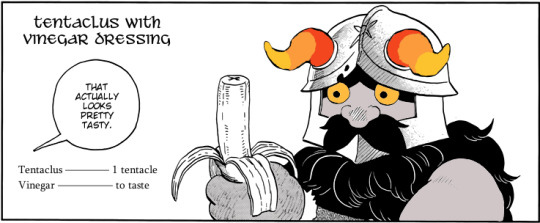
Senshi is next on our list! (After which I'm going to go back thru my inbox). Thankfully, the anime has already covered a lot of character defining moments for our boy here. Helps to not have to dance around spoilers for once lol. But also make sure you watch the anime before reading this if you care about S1 anime spoilers.
Senshi is the only surviving member of a dwarven expidition. They crossed into the dungeon while exploring some ruins; things went awry for them as they were unprepared and Senshi for the most part hasn't left the dungeon since, making a life for himself down there. He lays a lot of foundation for the day-to-day events found in Dungeon Meshi. His extensive experience living in the dungeon paves the way for our gang to venture forward with minimal supplies. Most of the times when Laios comes up with ideas around eating monsters it's Senshi who does the actual cooking. He is, of course, more than meets the eye and not just the party's chef, but also a capable warrior.
So, Senshi is a....
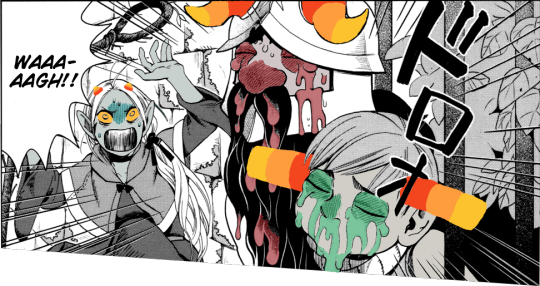
Heir Of Blood!
One who inherits [Blood]/is protected by [Blood]
You might think it strange that he share a classpect with Monkey D. Luffy, but I assure you it checks out! I think there's plenty of room for debate on what Class or Aspect Senshi really fits into until you start looking at his backstory. It's so damn clear cut. In a situation where, frankly he had no right surviving, he did. The pack of dwarves push Senshi along and set him up despite everything. 100% this is being protected by his bonds. He also inherits Gillin's philosophy to take care of the younger generation. (Funny considering I JUST answered a reply about responsibility NOT being a sub-Aspect of Blood). I would attribute this more to him inheriting that role and it shaping his future relationships than attributing it to responsibility though. Room for debate here.
There's also the mithril shield he inherits and ends up turning into a wok. I think it's poetic that the dwarven miner's legacy can live on through Senshi, even if not in the same form.
One thing that I want to really focus on with Senshi is just how central he is to the story. If you zoom out slightly, all of the characters are vital to the story; it's one of the reasons that Dungeon Meshi works so well as a series! But Senshi still has a special place amongst them: He is the glue that binds the series together. His vast experience living in the dungeon keeps the party together and allows them to march on. I think the phrase "Breaking bread" really fits well here as Senshi is almost always friendly and just trying to make sure that everyone is healthy and happy.
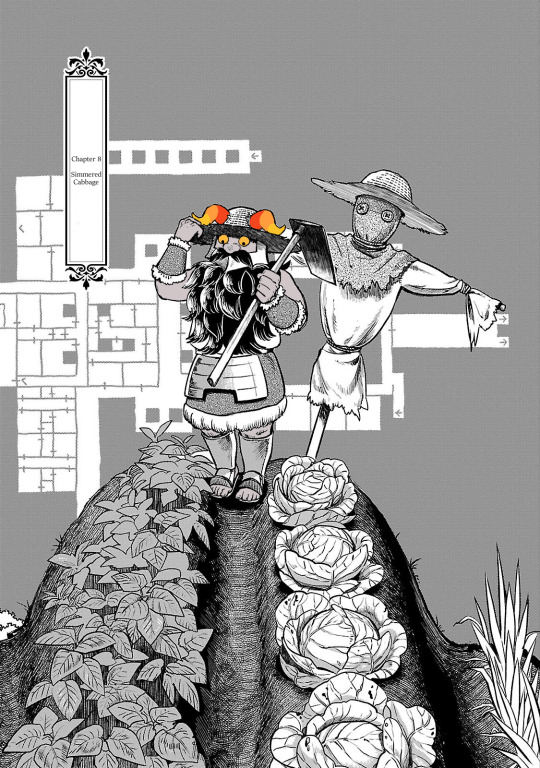
Anyways that's it for Senshi! Thanks for reading :^)
#homestuck#classpect#sburb#classpect analysis#homestuck analysis#dungeon meshi#senshi#senshi of izganda#senshi dungeon meshi#heir#heir class#heir of blood#blood aspect#homestuck blood#homestuck heir#delicious in dungeon#manga
22 notes
·
View notes
Note
Did a long quiz and apparently I'm a Knight of Breath.
defending fated paths, protecting with the very air we breathe. gay of ass, taking one's protective duties very seriously.... i assign you... sheepdog
8 notes
·
View notes